
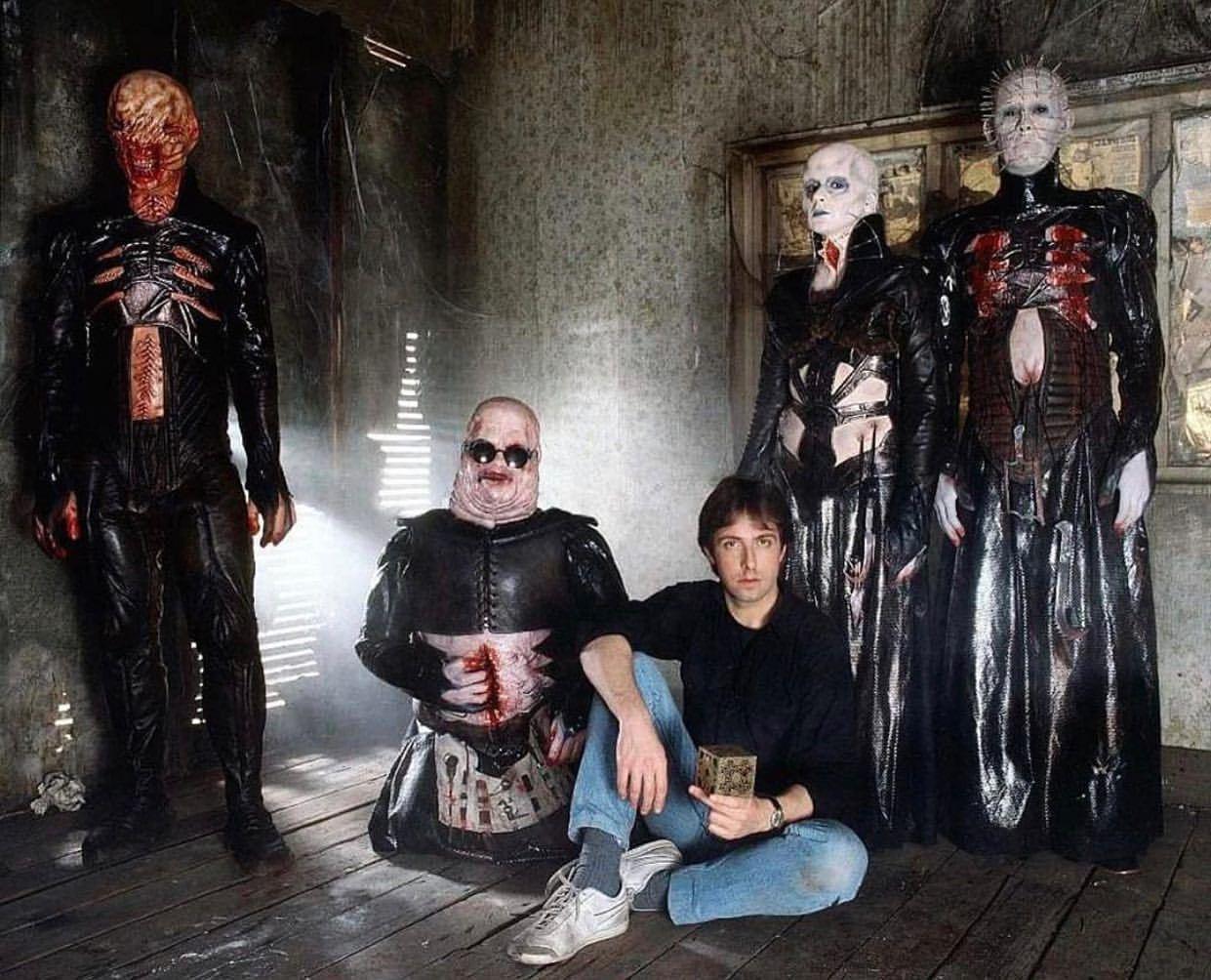
Vol. 1 issue 4
In this weeks issue:
Page 1-'The History of Hellraiser: prolonged suffering and finding pleasure in pain'
An intoxicating rollercoaster ride through the relevance of the first Hellraiser film in its opposition to '80s slashers and examination of how the sequels attempted to sustain themselves and remain iconic in pop culture. Finally, a review of the very latest Hellraiser film.
Page 12-'Hollywood's Debt to Texas Cattle Baron Robert J. Kleberg Jr.'
A review of major horror release Smile is used to ponder just how close we are to the death of jump scares and a plan is made for going out in style.
Page 18-'Someone's Been Watching their Bruno Dumont'
Long Tall Sally and Kelly make their way through yet another Dinner Table Horror with Speak No Evil. A detour from more mainstream outings, which proves to be a little nasty for LTS. Kelly admires the audacity.
Page 23-'Has Sorkin Done the Most Damage to America's Political Beliefs Since DW Griffith'
In the TV of the week section, we look at the legacy of The West Wing, which made Aaron Sorkin a household name. The success of the walking and talking methods and dialogue patterns are critiqued along with the gratuitous liberalism.
Page 28-'Psycho in the Digitial Age: Erotica, Watergate and Mass Surveillance'
The first time watch of the Week features a call for the critical reevaluation of the forgotten erotic thriller, Sliver. Another collaboration between actress Sharon Stone and writer Joe Eszterhas.
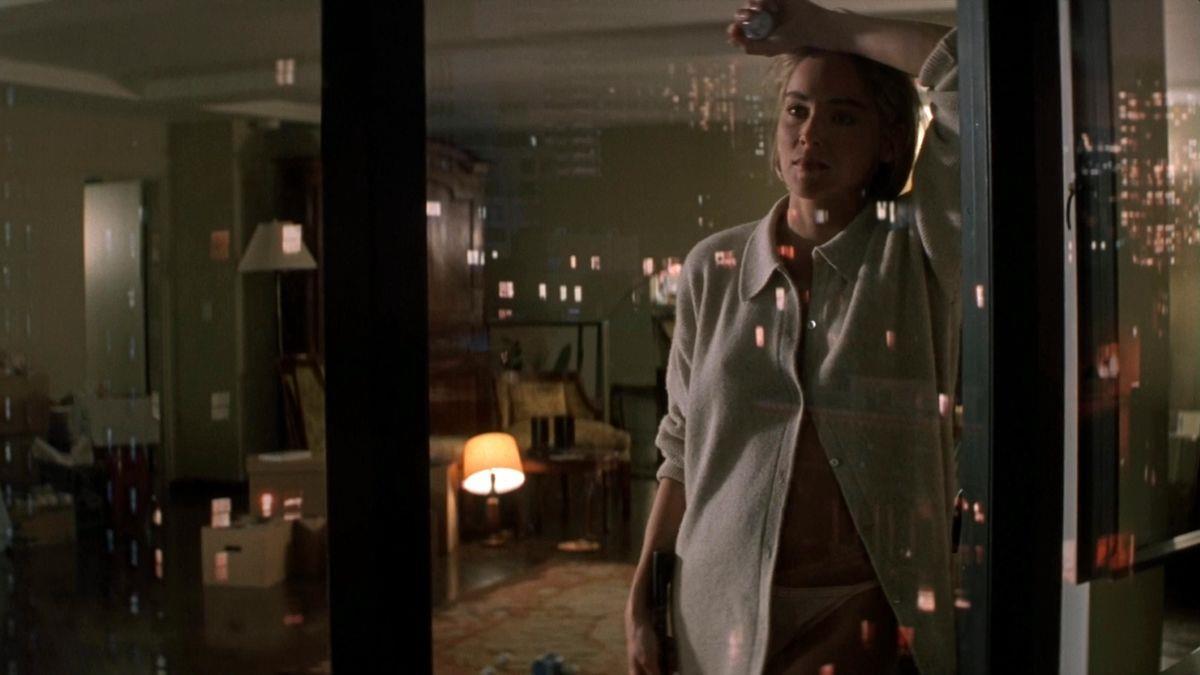
Page 32-'Do Butts Get Enough Screen Time? Asskin' for a Friend'
The weekly X-rated feature continues where the last issue left off with the other founding father of the Gonzo movement. John Stagliano's The Adventures of Buttman is under the microscope.
The History of Hellraiser:

prolonged suffering and finding pleasure in pain
The '80s is known as the golden age of slashers. A decade in which the formula was perfected. However, this genre didn't just appear overnight. Many reference 1960s efforts Psycho and Peeping Tom as proto-slashers laying down elements of what we would later see over and over. Both of these were way ahead of their time and probably only got away with it to the extent they did because they served as an analysis of perverts and transgender individuals. Hitchcock managed to keep his career afloat but Powell was not so lucky with Peeping Tom finishing his career. A tragic end for a man who had once given the world The Red Shoes
During the 1970s, the Italians developed a genre called the Giallo, named after yellow comic strips, which were like detective stories. Whodunnit mysteries or even Scooby Doo for adults (a favourite description of mine). The killers in these donned hats, trench coats and gloves resulting in the most stylish costumes, set design and cinematography in history. Hitchcock was a massive influence on these filmmakers with writers such as Edgar Wallace and Edgar Allen Poe being turned to as well. These films came not long after the spaghetti western, in fact you can see traces of the Giallos origins in the final films of the dying west. Cemetery Without Crosses being a fine example. You'll notice a link in that some of the filmmakers crossover. The young Giallo boys made their careers writing spaghetti westerns and the old western men finished out their careers making Giallos
A quick catch up of the genre would begin with Mario Bava's The Girl Who Knew Too Much and Blood and Black Lace. Next up, you have the genres two most competitive directors Dario Argento and Lucio Fulci. Argento would have early hits in the The Bird with the Crystal Plumage, Cat O' Nine Tails and Four Flies on Grey Velvet. Fulci in A Lizard in a Woman's Skin and Don't Torture a Duckling
Both would achieve more fame and recognition for their post-Giallo efforts such as Suspiria, Deep Red and The Beyond in the 1980s. They kept up the colourful palettes but moved away from the detective oriented stories. Argento's focus was always the eye and the image. Whereas, Fulci favoured the ear and gateways to other worlds.
Prior to his Giallos, Bava had worked with Hollywood's biggest horror stars Boris Karloff and Christopher Lee in Black Sabbath and The Whip and the Body respectively. Therefore, bringing international attention to his work. Never more so than when Chistopher Lee attended a screening of Bava's 1971 movie Bay of Blood. Lee made a big deal of the event to the press telling them he was attending a premiere of an Italian director whom he admired. After viewing the film, he pathetically deemed it too violent for his tastes. Cowardly antics considering how hard he liked to tell people he was back in the day. Luckily though, the statement did give these films a wider audience in their notoriety but critics firmly rejected them. Only in the last few years has public opinion began to change with Criterion jumping on the bandwagon, finally realising the talent involved.
I remain clueless as to why their artistic credibility was not seen when to this day The Bird with the Crystal Plumage remains one of the most fair to its audience thrillers ever made. In this, the killer's identity is revealed to us from the outset, no cheating involved. You have the opportunity to figure it out act one, if you've got the tools. We even get the image played back to us multiple times. It is only by looking closer and repeatedly we solve the puzzle. This method differs from most thrillers today because you can genuinely work out the killer for yourself ahead of the movie. It is overly popular to manipulate in this genre and control a movie so audiences cannot arrive at a conclusion before the third act reveal. In a sense, you're cheated. This does not happen with Plumage.
a
1
Lee was right about Bay of Blood though, it is wickedly violent, especially for its time. There is not the same finesse present than in Argento or Fulci's films and yet it remains just as important in the Giallo game for me. Strictly because of this increased violence bringing us closer to the package of the gnarly US slashers of the '80s. Alongside Bay of Blood, I would also acknowledge Sergio Martino's films Torso, All the Colours of the Dark and Your Voice is a Locked Room and Only I Have the Key as contributions bringing us one step closer towards what was to come. Martino is a dirty little bastard with a real eye for violence and the erotic. He never strays too far from those two. These films are all a little rougher than the glamorous Giallos the came before like Blood and Black Lace.
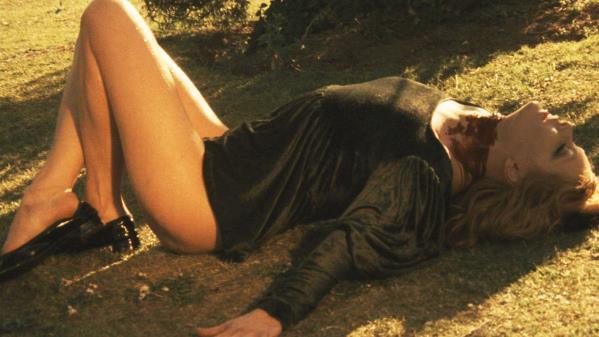
Now we make it to America with Black Christmas, directed by Bob Clark in 1974. This guy was on fire that year releasing a namsploitation horror in Deathdream and then going on to create the OG slasher and potentially first proper Christmas horror too. Many critics would make the mistake of stating John Carpenter was inspired by the Giallos for Halloween in 1978. These films had barely crossed the waters and were mainly seen by a handful of critics. Carpenter freely admitted that although he eventually came a huge Argento fan, at this time he'd only seen American horrors like Black Christmas and The Texas Chainsaw Massacre. Clark is believed to have seen the likes of Torso and Bay of Blood.
Halloween went on to be an enormous success though pulling in $70 million off a $325,00 budget making it one of the most profitable independent movies of all time. To take this in for size, another independent horror, Terrifier 2 is getting a lot of attention right now (and deservedly so) for currently sitting on a gross of 2 million from a $250,000 budget. Sean S. Cunningham and Steve Miner see these numbers for Halloween and they go off and make Friday the 13th in 1980. At this point, it's unavoidable, the slasher wave of the '80s had arrived. New decade, new genre cycle. Audiences wanted it and filmmakers could bring it in on the cheap. Small townsfolk made names for themselves over night. Locals became legends all for making a movie over a matter of days. Everyone was inspired. Everyone wanted a piece.
Without fail a new slasher arrived every Friday night like clockwork, which you would take your buddies to, get drunk and later maybe go to a party. It would be easy to get lost in the sea of slashers from this period. Consequently, the ones I would most recommend personally would be in no particular order Jesus Franco's Bloody Moon, Brian DePalma's Dressed to Kill , Michele Soavi's Stage Fright, Anders Palms criminally underseen Unmasked Part 25, Doris Wishman's A Night to Dismemember, Juan Piquer Simon's Pieces, Tony Maylan's The Burning, Wes Craven's A Nightmare on Elm Street , Dario Argento's Tenebre and Tobe Hooper's The Texas Chainsaw Massacre 2 Despite not all being characteristic or the most popular entries, I would say they are the best. The Burning is the best slasher in its truest form. However, each of the other ones here provide a unique experience each time, demonstrating what the genre can do rather than what it was known for.
Critics gave these movies a very hard time, earning the likes of Roger Ebert and Gene Siskel no friends in the horror community, despite being generally decent critics. People forget the absolute magic of Tom Savini's special effects work. A man who saw the reality of Vietnam, capturing it on his camera like Joker in Full Metal Jacket When he returned home, he decided the films being released weren't close enough to the truth. This led him to putting his knowledge of decapitated limbs to use in the slasher genre, effectively coming horror's secret weapon with his insane levels of gore. Unfairly, this guy is only respected in horror circles when in reality we should all be thanking him horror fan or not. Why? Because if it wasn't for this dude blood in cinema would still look paint red like it did back in the '70s. It was Savini who first began experimenting with different mixtures of fake blood and producing the more accurate representation we see today.
2
Right so here's what you do. Start with The Burning and make your way through those 10. Finish with intentional parodies like Unmasked Part 25, Tenebre and The Texas Chainsaw Massacre 2. the latter being the king of '80s slashers for me as it knowingly mocks the entire genre, 80s excessiveness, sequels and John Hughes movies. Fuck it, it even mocks itself and the original. Mark Kermode and Kim Newman have made it well known that they hate this film because it appears as though it was made by someone who has never seen or understood the original even though it was still directed by Tobe Hooper.
Tonally yes, it's completely different and this is exactly what makes it great. It's the post-modernism that opens up the door for new opportunities when the genre had supposedly run its course. Does Kermode not realise this is written by L.M. Kit Carson known for scripting the Breathless remake (discussed in issue #3). That is the best way to see it. Breathless Texas Chainsaw Massacre, a parody of everything to the point you can't fully work out what level of satire it's operating on. Even I'll admit I wasn't so taken by Texas Chainsaw 2 at first but does have its Gonzo appeal and the comedy offers an alternative separating it from the relentless stream of similar slashers.
Unavoidable though is the fact that in the words of '80s synthpop chieftains
The Fixx, 'One Thing Leads to Another'.
As much as parody does offer a genre a temporal after life past its golden age it does tend to signify the end. A final cry of creativity. Always annoying cause I do tend to like this period as a kind of reflection on all that came previously and why we came to love them. Occasionally, in some genres a reminder that it wasn't all that bad, may have been some messy detours but a fun journey overall with a wonderful send off.
Whilst I can't say I've ever got bored with the slasher cycle, I can see why many were happy when Hellraiser entered the picture when it did in 1987. Clive Barker became a first time director for it adapting his own novel, The Tell-Tale Heart.
Barker cited the reason for his venture in to filmmaking stemming from the fact he was disappointed with previous adaptations of his work and the direction horror was going in generally. Big boy Barker felt the need to step in and correct its course. His contribution? Less comedy, more horror and unprecedented levels of horniness. This film has plenty of culture tied in with the 'Cenobites' being inspired by Barker's trips to S and M clubs in New York and Amsterdam, hence all the leather involved. Came at the right time too with the way music was going, a sort of visualisation of the industrial genre. Adding to this, Coil were actually meant to do the soundtrack. Luckily, some of their arrangements were recycled and used in the movie. All of this proved too horny for the censors and Barker had to go to war with those conservative overlords to steer clear of the dreaded X-rating.
At its most basic level, Hellraiser is about these Cenobites, a gang of individuals previously human but now living in hell. Their pursuit of total satisfaction has led them to become unable to distinguish between pleasure and pain. Using the Lament Configuration (a small box) they can be summoned back to earth to test subjects in the two P's. You've got to constantly remind yourself these details when you're watching the sequels because the filmmakers themselves seem to forget the fundamental principles too. Expanding on the mythology isn't exactly this series strong suit. Instead, it usually seeks to add and take away aspects with each film to best suit its needs at any one time, more so than arguably any other franchise. In the process, character motivations become very confused. I will get to the exhilarating ride of these sequels but first, let's stick to the original.
Reaction to the original was extremely strong on both sides. Melody Maker had it down as the Best British horror film of all time and Roger Ebert declared it a 'bankruptcy of imagination'. Clearly, he hasn't seen all the sequels.

3
Where do you think I sit on this one? The former of course. Without a doubt Hellraiser sits at the very top of British horror alongside Peeping Tom, Don't Look Now, Kill List, The Wicker Man, Dracula and Repulsion. I adore Barker's style which is somewhere between Stephen King and William Peter Blatty. Conflicting battles of good and evil with the perseverance of faith in questionable times all through the lens of B-movie trashy horror. Fused with an overwhelming sense of erotica and this perfect understanding of sexual pleasure and torture having lines which become blurred. Everything about the approach still seems mature and never nerdy or boring. Of course, the first film remains the undisputed best of the lot.
Hellraiser 2: Hellbound was the initial sequel released in 1988, only a year later. Tony Randel takes over directorial duties and since he served as editor on Barker's film, it still has plenty of the originals flavour. Toned down on the erotica but it does not sacrifice any of the surrealist elements making for an extremely exciting trip through the originals world. Set design even bolder. Some will accuse it of being a plotless affair, especially with it moving away from targeting family structures but following this one from beginning to end is too much of a beautiful journey to miss out on. A cerebral experience with so much to digest. Best to think of the second film as a Jodorowsky movie. Only repeat viewings will allow a deep understanding but on a first watch it sure has an intoxicating cinematic beauty that is more felt than understood. Potentially favouring the emotional over intellectual.
Having seen these films originally so far apart, it always baffled me how they took this material in to franchise mode. Barker's film had some marketable aesthetics especially in The Matrix like outfits but this was too artsy surely to work in the same way as the Freddies and the Jasons. I always wondered how they sold the series and made it so iconic in pop culture as it is today. Hellbound didn't answer that question at all being a reasonably faithful follow up.
Hellraiser 3: Hell on Earth is the break away from the pattern and explainer of how this became a temporary box office staple.
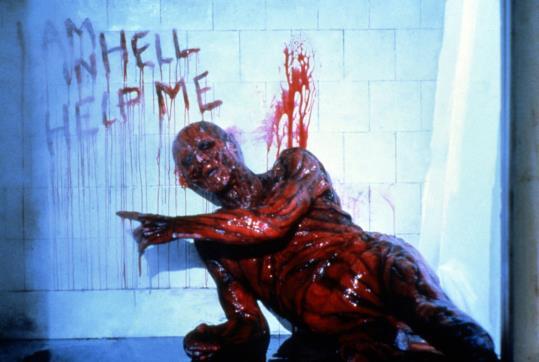
I'll admit to being massively impressed by how the third film handles the shift in to a more commercial arena. It's a re-invention inside the body of '90s horror sequel. My admiration for it lies in that it does not sacrifice too much in its dumbing down process. However, I could understand those being disappointed that they took the original movie that was a move away from slashers and then made this series shift back in to what it was rejecting. In all fairness, as wrong as the move may be, they made a decent movie out of it so what the hell(raiser).
Bride of Chucky and The Exorcist 3 are the guidebook for how to reinvent for the '90s. Hell on Earth can't quite reach those heights but is a fantastic achievement for the same reason as those movies. Let's go with a notch above Freddy vs Jason. How did they make this movie mainstream then? Turn the Cenobites and their leader Pinhead into iconic serial killer types of course. Throw that leather in your face and make the box a cultural artefact recognised by everyone. Plot wise you keep things pretty simple and don't you dare overcomplicate. Literally: Box -> Cenobites appear -> people hurt. Don't stray too far in to the originals complex themes of sadomasochism and religion. Hell on Earth even uses a KMFDM song (Ooh-LaLa) on the soundtrack, which did it some real favours by expanding the fan base and still keeping it in line with the industrial aesthetic so not to lose the hardcore fans. They kept the plot tidy too with Pinhead appearing at a night club and going on a massacre. One of the best dancefloor wipe outs I've seen since The Collection. Any confusion is cleared up by the locations hammering home the themes and keeping the young, dumb and full of cum entertained for a solid 90 minutes. Hey, they even keep a few surreal war scenes!
You'd think Hell on Earth did such a great job that this series would be set for the next 20 years with the strong package established. Think again. Hellraiser 4: Bloodline becomes the first, of many, duds.
4
Strangest part about Bloodline is that it's not completely terrible. Our problem lies in that its themes and ideas are too complex for the dumbed down package carried over from Hell on Earth. Pinhead becomes this Nietzsche like figure opposing God and addressing modern society's rejection of religion. He has one of his best lines in this, when he reveals, "Do I look like someone who cares about what God thinks?". An absolutely hilarious line which put me in stitches. Tragic what happened here because thematically it's so rich with so much on its mind about sex, slavery and religion but it quickly becomes lost in the convoluted storytelling. Only Blatty could have saved this one. Get him directing and make Brad Dourif part of the cast, wallah all sorted.
We get some, and I always hate to see this, serious pussyfooting in Bloodline as it tries to play sequel and prequel simultaneously. Fair play to it for realising that yes you can have many different times, worlds and realities at play in Hellraiser (something the other films forget) but this is a total mess. We get a costume drama (which is boring) alongside a futuristic Jason X rip off (which is hilarious). Has its moments does our friend Bloodline but its buried under piles of shit. Dreadfully assembled and blatant production problems. One director going for a classic pseudonym to distance himself from the project being a big indicator and then Joe Chappelle was brought in, which says it all. The thing is, you never call on Chapdog to save your project because the moment you do, you are doomed. This guy ruins series. Chapdog's name gives me the shivers every time I see it because this is the man who made the Halloween movie The Curse of Michael Myers
Understand that I love nearly every Halloween movie but the fucking curse of Michael Myers. Fuck you Chapdog Stay out of my sequels.
Part 5 in the Hellraiser series brings in an entirely new formula to sustain itself. Inferno marks the beginning of the Seven rip offs. They would try this no less than 3 times across the 11 film run and on in this occasion it works best. Any Saw fans in the house would be wise to check out this entry.
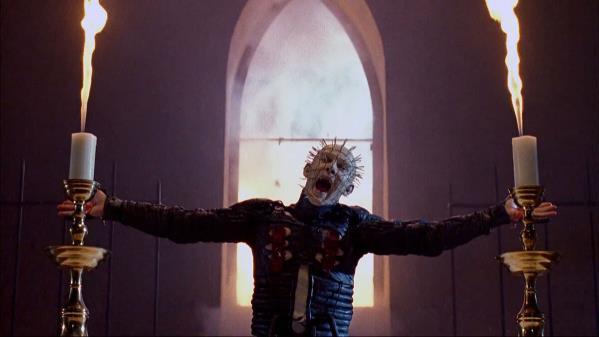
Unfairly, due to the wavering success of the series, this is the first to be a DTV (direct to video). Unlike his buddies Jason, Freddy, Michael and Chucky, Pinhead has never been big box office and it's easy to understand why as I mentioned previously it's too high concept. Or at least it was to begin with. Try explaining to your mates after 12 pints what Hellraiser is about, you've got no chance. Regardless, Inferno does exactly what a DTV release should do which is announce the arrival of a talented young director. You play your cards right at this level and you move up in the world to a bigger pond. I am referring to Scott Derrickson. A decent director who's made a real habit of making shite films. He's become too much of a fucking sell out these days but I do firmly believe he's got the tools.
Many will know him from The Black Phone and Sinister. Can't say I particularly like them. The director has two modes. Really grisly atmosphere (that I approve of) and childish nonsense for a mainstream audience (that I don't approve of). Sinister showcases some of his best and worst tendencies. Ethan Hawke blowing up celluloid footage of snuff films on to a laptop absolutely represents the good and the kids following him round the house clearly the bad.
Before watching Inferno, Deliver us from Evil was my favourite Derrickson film. Not an opinion shared by many but Eric Bana and Edgar Ramirez hunting down a bunch of dirty Doors loving demons was fun. Ok, so the whole soldiers coming home from war with demons metaphor is undeveloped but Derrickson is allowed to do what he does best without interruption: atmosphere. This movie has all the dread of Scorsese's Bringing out the Dead and a late night crooked cop horror film like 10 til Midnight. No kiddie nonsense to ruin it. Wait, Bana actually avoids his kid in this one because he's carrying a lot of guilt as a cop. The way it should be in a Derrickson movie. Kids should never enter the frame. '50s creature feature fans like myself will be intrigued too by the way it updates red scares with middle eastern fears. It's in need of some re-appraisal this one. On Netflix at the moment too so next time you need a late night grimy movie that hasn't showered in days, here you go.
5
Inferno is actually now beginning to get some respect too in retrospective reviews and it deserves it. Derrickson's best work and one of the best of the Hellraiser series. It utilises a Jacob's Ladder style set up along with its Seven aesthetic. We get a dirty detective trying to solve a puzzle, whilst hooked on the coke, cheating on the Mrs and banging prostitutes on the side. Detective Hoffman fans in the Saw series wait til you get a load of this dude. He represents all that’s shady about law enforcement. Dude looks like he hasn't slept in a month and all his colleagues keep saying he needs a 'Psych evaluation'. You know the type. Difference between this and Saw though is that Jigsaw offers characters a chance at redemption. Whereas, Pinhead offers only pain. There is no escaping or redeeming in Hellraiser, there is only torture. You are not tested, you are punished. Inferno is an inverse of the familiar structure to explore themes more appropriate to Hellraiser, making this a good one. Also, helps that it brings back the surreal scenes and turns it all in to a Lynchian noir. Great movie.
2002's Hellraiser 6: Hellseeker maintains the Seven aesthetic once more but it's a whole lot shitter. Hellseeker is the first in the trilogy of Rick Bota directed films. Yes, we are now in Rick Bota's hands for better or worse. No idea who this geezer is but he does not have the tools. Hellseeker is a bad movie on all accounts but I couldn't help but find it a pure guilty pleasure. It's basically Inferno but done by a complete amateur. Final Destination fans may flock to this one as this is when they start ripping off that series too. They cement Pinhead as this Jigsaw type testing people here and playing games. It doesn't have that clever inverse of Inferno though with that lack of redemption so it's nowhere near as relevant or interesting. You know me though, I live for a good 90 minute game. Whether its kicking a ball around or John Kramer laying out traps, I want it.
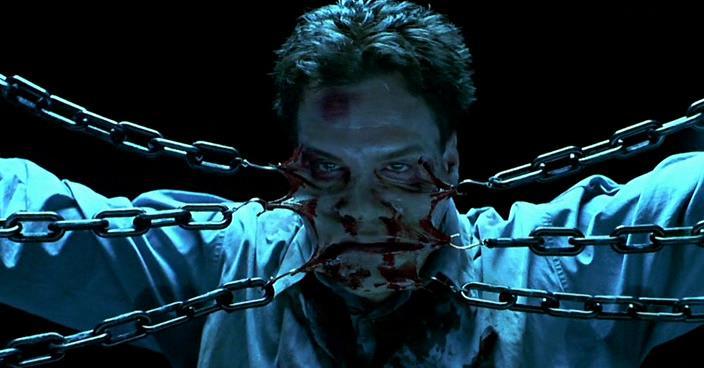
Number two in the Bota trilogy and the seventh in the series is the worst one so far. But you know this from the lousy title, 'Deader'. Sounds like a tag line to a Die Hard movie. *said in low gravelly trailer voice, "Deader. Harder. He's back!"
Although it might not seem it, I am actually more tolerant of these sequels than a lot of people who tend to give up after the first two. Why? Because I don't mind them being stupid. They can be intellectual. They can be dumb. They can be artsy. They can be trash. Don't bother me none. What they can't be is bloody boring. Deader is as dead as it gets. It's a fucking snoozer. Literally, other than a couple of promising stylish sequences on a train, this has very little to keep you engaged.
Not mentioned this yet but the last three films (5 to 7) have all been written in a specific way. The studio would buy scripts, either cheap horrors or thrillers, then tag Pinhead and the Cenobites in to them later. Meaning that they were originally just random stories that were then turned in to Hellraiser movies. On the last two, I could defend this movie as it does indeed cause each one to be different and have its own personality. For 60 minutes you're watching a normal thriller and then they try to tie it in to the series. Inferno was enjoyable to see how they would bring in the Hellraiser material. Only thing that would have made it better was if they went the Dan Trachtenberg route (Prey, 10 Cloverfield Lane ) and taken Pinhead off the poster and the entire promotion. That would have been braver and cooler, to slowly realise you were watching a Hellraiser movie. Genuinely, it could have pulled it off because Inferno stands on its own feet as a detective thriller.
Deader does not stand on its own two feet, becoming a site of your hatred with the series thus far. A culmination of the problems the last two movies made you forget about. Back to that question of how did they turn a high concept artsy horror in to a popular franchise? Firstly, they went the Chucky path. That is 90s re-invention and turning in to what the original was opposing and made in reaction to. Worked for a single film and could not be repeated. So now what they do is write other movies and then have the final 20 minutes as a Hellraiser movie. Hilarious, isn't it? Let them get away with it for two movies but Hellraiser: Deader had me chanting for about an hour, "We want Pinhead, we want Pinhead!"
6
After that disaster, Bota wraps up his trilogy reasonably respectably with Hellraiser 8: Hellworld. This brilliant act of stupidity put me right back on the Hellraiser train. This one had it all. New Nightmare/Scream postmodernism lacking any of Craven's wit. Chat rooms. Fan sites. Forums. And, I shit you not, a Hellraiser party. A plethora of shitty nu metal. A mansion owned by a creepy old Lance Henriksen. A young horny Henry Cavill who gets head and treats women like shit. Superman ends up getting penetrated from behind (not a lie). Nokia brick mobiles. Torture traps. The lot.
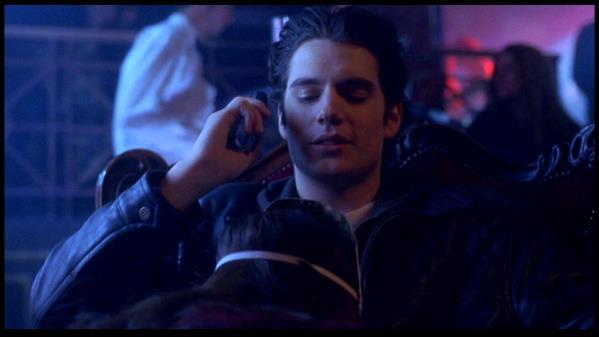
Honestly though, it does very little with these wonderful ingredients. The sexy poster suggests this is the movie of the future and you can see they've really wanted to use the internet in this film as it was hot topic. However, they never really find a way to use the internet in a more abstract sense, resulting the same old slasher setting: a party. I was expecting video games and other realities but we’re restricted to the same old location. There was some hope with the scene when they all get handed Nokia bricks at the party but even this fell short. Bet they thought they were well clever because characters could chat to each other in different rooms with mobiles and continue their separation. Dialogue carries on and so can the killer.
Always does intrigue me does horror and the mobile. There was once great fears that those small pocket sized devices could kill off horror. The ability to call for help and alert the emergency services killing off any danger before it even begins. Mostly, they just ignore their existence but I do always watch closely to see how mobiles will be used to affect situations. One of the only decent uses of the mobile I've seen in horror was in Scream 5. A girl uses the 'find my iPhone' function, building up suspense as we fear this may lead her straight in to the clutches of the killer. All credit to the scene, it showed if thought about correctly, mobile phones could create new scares rather than hinder the genre as was first believed.
What you will notice with Hellworld is for the majority it lacks plot and has to revert to finding reasons to randomly split characters up in to alternate rooms. Any resemblance to plot is stolen from I Know What You Did Last Summer. This whole time they're trying to sell it as Hellworld, when in reality it's just Lance Henriksen knows what you did last summer. I couldn't hate this film if I tried though. You can visualise the filmmakers continuously shouting, "forums? Fan sites? Yeah! Yeah! That's so cool. Throw that in. This is gonna be awesome!", with next to no thought as to how to make a proper story out of it. Hellworld is immensely stupid but on the whole, fun.
The thing to note with Hellraiser is that just when you think it can't get any worse, it does. That was always Pinhead's greatest gift, finding new levels of pain. If you thought Bota's trilogy was a real low point, wait til you see the next two. These are exceptionally bad. Even the die hards can't hack these. You could have told me the last few weren't DTV's and I would have believed you. These two showcase the worst of DTV (for those looking for the best it's Universal Soldier: Day of Reckoning ). What we have here is very cheap, very ugly, minimal locations and no consideration for framing with cameras placed willy nilly
First up, Hellraiser 9: Revelations from 2011. A movie made in a matter of weeks and a by-product of Dimension Films contractual obligations to make another movie or lose the rights to the series. Sums it up really, it's that kind of financially driven project with no consideration for the fan base. Corporate bullshit. Cannot support that at all. Neither could Pinhead, Doug Bradley even walked because he disapproved of the rushed approach. Safe to say, this film took me back off the Hellraiser train.
7
You can tell Revelations is a mess because its running time barely even surpasses the hour mark. Hardly even a finished feature. At first it looked obvious that they'd switched to found footage format to save on production costs. Unexpectedly though they abandon the found footage pretty quickly and for some reason I changed my mind on the subject, believing they should have kept that angle up to add something different to the series, no matter how poorly handled.
Revelations does incorporate the US/Mexican border beef as all series had to in the 2010s. Although, an earlier participant it hardly expands on the theme and becomes more like Rambo: Last Blood and Terminator: Dark Fate than Sicario. Meaning dumb misguided xenophobia rather than a commentary on dumb misguided xenophobia. Instead of Bota's intentional comedy and parody, this is an attempt to re-align the series with the shock of the original. Not necessarily a bad idea for a reboot, returning to the roots but this is some awful execution. Bota's trilogy was dumb people making dumb shit, whereas this is just dumb people trying to be smart and serious. Hardly playing to their strengths.
As a result, the violence and sex is increased. We have racial conflicts, Columbine snuff and suburban family satire. All of which is tackled in a very infantile shock free manner. A small few have praised it on the grounds that the picture is nastier than the predecessors. Yes, it is ugly, but it's not even ugly enough to be interesting. No doubt someone like Todd Solondz could have turned this in to an unforgettable and scarring masterpiece but these guys are what Walter Sobchak would refer to as, "fucking amateurs". The stab at Amityville Horror: Possession incest was just laughably bad. Oh and the funniest line does come from that scene too when a girl refers to the Lament Configuration by saying, "The box? I love that thing, it's so cool". Come on that's my line when I'm on my 12th pint watching it. Perfect demonstration of the intelligence on display in Hellraiser: Revelations.
Took them another 7 years to pluck up the courage to release Hellraiser: Judgement, which makes no sense because it has the appearance of something that came five seconds after, resembling an inevitable double tap sloppy turd on the shitter that joins its brother in the bowl. A quick one two of dung. Did amuse me this one though because when all else fails at sustaining the franchise, what comes next? Back to ripping off Seven. All options exhausted, back we go! Half respected the decision because it's blatant message of "We are out of ideas". It's difficult to be angry at a moron. Oh well, it's a slight improvement over Revelations but saying that is like saying putting your head in a vice and being abused by Joe Pesci is better than slicing off your own foreskin with a rusty tin opener.
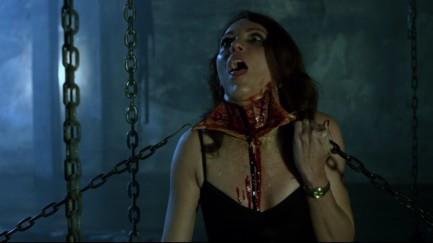
Only redeeming factor of Judgement are The Auditor and The Assessor. Both those two fellas were on the right page. One of them types your sins in your own blood and the other eats the evidence then throws up in to a pipe. An act they've clearly been doing for years. Very entertaining stuff. The main actor in this Damon Carney thinks he's on some Kill List shit and its obvious the only man who could have saved this, I want to say sinking ship but the ship was sunk a good few films a go, would have been none other than Ben Wheatley.
Fucking hell, so this had been a long journey but I was finally up to date with the Hellraiser series! I'd been waiting a long time to say that and Christ it felt good. Normally, I enjoy endless horror sequels and become an apologist along the way. Not today. Let me tell you something, I have seen all the Jasons, all the Freddies, all the Jigsaws, all the Chuckies, all the Michaels, all the Bates, all the Leatherfaces and all the Ghostfaces and I have never encountered a worse run of films than the Hellraiser series. No wonder they were doomed to DTV releases when no-one else in the gang was subjected to the same treatment. Sad to see, since the first Hellraiser is of a real high standard. Anyway, I wanted to catch up with all of them so I could feel the pain the fans had experienced so far and I'd even heard the latest was meant to be great.
8
I did all this just to watch the new one and it fucking sucked. Big time. No exaggeration when I say, this is the worst one of the entire series. What did I say about this series continuing to teach you new levels of pain just when you think it can't get any worse?
Fucking Pinhead and his ultra-devotion to inflicting pain. Bastard. They want to tell me this is good because it has gay characters, male nudity and solid production values. Whilst I support having the first two (Cruising and A Nightmare on Elm Street 2 are the peak of homoslashers) you do have to actually do something with it otherwise it's just lazy and you're simply queerbaiting.
As for the latter, anyone who believes that a film is inherently better than another because of production values is a clueless fuck who should keep their mouth shut. If this were true, then why would we still praise the likes of The Texas Chainsaw Massacre, The Last House on the Left and Night of the Living Dead. We've had plenty of higher budget, better looking slashers since. It is literally because of their aesthetics that we speak of them so highly. How else would you comment on Vietnam news reels and exposure to real life violence through television? Are you going to tell me these films would do a better job with a higher budget? They literally tried putting Night of the Living Dead in colour and it robbed it of its news footage style aesthetic documenting 60s imperialist wars, assassinations and racial lynchings.
So yeah saying any movie is automatically better than another because of budget or production values is just a ludicrous take. If it doesn't fit, it doesn't fit. There's different decisions that suit particular material. Hammer Horror for instance is the opposite, needing bold sets and costumes. In this case, I have no idea how making Hellraiser prettier and more aesthetically pleasing would be a good decision.
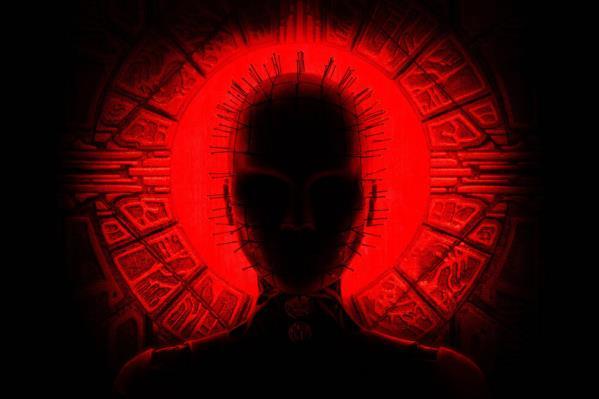
In fact, it's a dreadful decision and the very reason, I believe it is the worst one yet. Ends up looking like a Disney Channel adaptation. Yes, The Cenobites are out here looking like a 12 year old girl band. Let the kids have their fun is always my stance and if Disney dropped something like this in the early 2000s alongside High School Musical and Jump In, I'd say cute, obviously I'm too old for it and say no more. There's been some mistake though cause this shit has Hellraiser on the title. They've hijacked my slot and kiddified it, which pisses me off royally cause this isn't the '80s and horror bangers aren't being dropped every Friday night.
For those who have seen the last two Hellraisers (Revelations and Judgement) and are confused how it can get any worse, allow me to explain. Those were truly awful movies, let's not forget that but at least they knew they were Friday night horror movies. Call it a terrible form of the correct package. This 2022 version is a terrible form of the completely wrong package. You could drop this new Hellraiser on Nickelodeon at 4.30 on a Wednesday afternoon and no-one even would bat an eye. Genuinely, I wish they had and I could have gone, "aw that's nice isn't it".
Insane to think that I was singing this director David Bruckner's praises about a year ago with The Night House. Rebecca Hall gave one of my all-time favourite ever female performances next to Jane Fonda in Klute. No-one ever talks enough about this Hall 'Tour De Force' (yes I've decided I'm bringing this phrase back after some Steely Dan head I know used it ironically the other day in the boozer to describe a beverage when asked by a bartender). They should have rained down on my woman with Oscars after that knockout. An even bigger injustice than Toni Collette's disrespectful snub with Hereditary if I may be so bold as to say. Female alcoholism doesn't get enough attention in film and that bird fully convinced me she was going through something alright. Don't know about you but I am sick of seeing it presented as some cheery fucker darting about with loads of energy, wine glass in the hand. Hall's depiction was painfully closer to the truth and we need more of these images to counter the bullshit of how it's usually presented.
9
Perhaps, Rebecca Hall was the real success of that movie and this Bruckner is a fraud. She went on this year to do the rather uncomfortable Resurrection and trust me she's on a role. I have given her the title of 'Horror Hall', the absolute queen of this genre right now. She's really found herself and is in a mid-career high. Jenna Ortega seems a bit too much like the brunette Chloe Grace Moretz right now. There's hope there though or maybe I'm just too old for that kind of star.
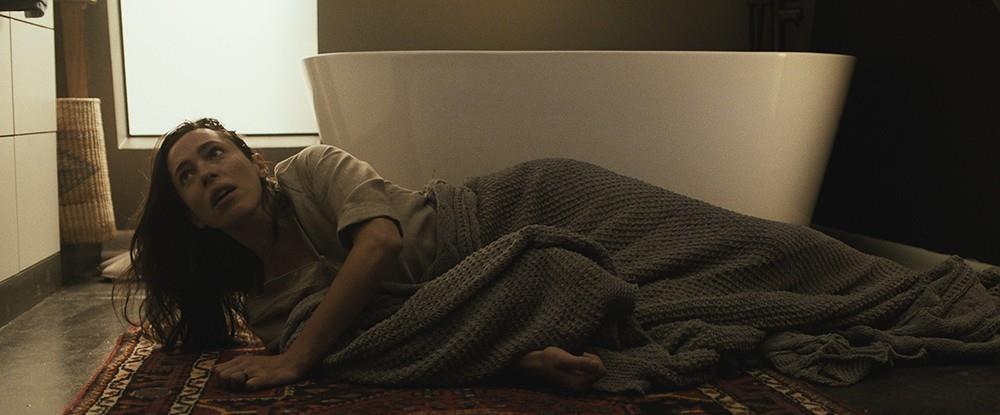
Bruckner carries on his commitment to the addicts of this world which is admirable but he can't really find a way to continue it past the first act of Hellraiser. The writing does very little to progress the theme past the first 20 minutes. Too much of it becomes sacrificed to make way for the Hellraiser plot and the characters become lost. Even if it did maintain the characters, it soon settles in that Odessa A'zion isn't Rebecca Hall and Jamie Clayton sure as hell isn't Pinhead. Watching this I felt the same energy of Donnie Wahlberg in I think it's Saw 3 (hard to tell with all the flashbacks) screaming at the top of his lungs, "You're not Jigsaw, bitch!" Goes through me that one every time. Pure mind games that should be used on an opponent who gets too cocky for their boots but is nothing on the main attraction. At regular intervals and whenever she went for a Doug Bradley sermon, I would yell at my telly, "You're not Pinhead, bitch!".
What happened to the sex this series started with? Totally gone here. Replaced by a couple of under the sheets conservative sex. Typical woke nerd characters with the filmmakers trying to be all lazily progressive. All we get is a dude's buttocks as he stands in the shower. Have we finally reached the point where we have to say, "that's great and all but can we have more boobies?". Don't understand why this has always been such a problem. How many times are we going to have to keep having this conversation? We don't need to tone down anything, we want more of everything. We don't want one form of nudity instead of the other, we want it all and we want it now! So get all the cocks and all the boobies available and round them up for action. Come armed or don't come at all.
There's a scene early on in this when two friends with benefits are going at it in the bedroom and one of them midthrust accidentally goes and spoils it all by saying something stupid like, "I love you". The partner says, "what?", becoming so distracted she ends their workout and leaves the room. Why I didn't do the same, I don't know. If I could go back, I would have. That was my cue. Horror is about fucking not love making. How dare they infiltrate my Friday night movie with this monstrosity. Be arsed with this shite masquerading itself as a Hellraiser movie. Hell was not raised.
Personally, if I was to modernise Hellraiser, the erotica would make its long awaited return for sure. I'd be fighting off those censors as I try to capture the most blasphemous images ever committed to film. As for the much needed dumb pop appeal? I've got that covered as well. I'd be following in the footsteps of Daniel Isn't Real by using Boy Harsher's Pain. That song would be very much at home here. Plus it could well be time to go back to Coil as Barker originally intended. Hellraiser takes a trip down The anal staircase baby! That would take us away from this Disney deviation and back in to the hands of clobbering brutal industrial.
This Hulu Hellraiser reboot is a far from cry from their earlier success this year with the Predator series on Prey. That gave me too much hope here and was exactly how I expected that to pan out originally. If there's something this series has taught me though, it's that each successor tends to be so bad that the previous entry comes even better. I can't tell you how they will do it but the next one will be worse than this I have no doubt and I'll be defending Bruckner's garbage saying, "it did have a promising first act with the addiction stuff". Thus, I will find pleasure in pain. Why does Pinhead keep doing this to me? If you're reading this you fucking leather obsessed freak, I'm challenging you to a 1 on 1. Location: the rooftops by the docks in Manhattan. We're doing this Jason Takes Manhattan style. I'm going to show you the true meaning of pain. Mano a Mano. And don't give me any shit about needing a stupid box to get there. I know your games, buster. Be there or be square, coward.
10
Final rankings of Hellraiser series:
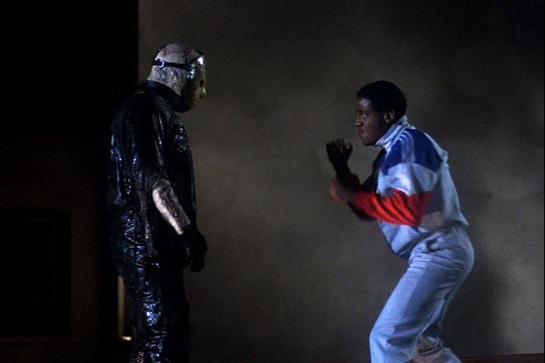
2.
Bonus Points:
-Bruckner continuing his exploration of addicts (even if it is only for one act)
-Male nudity for the gays and the women
-Making me see the small good in the last two abysmal films because of how bad this was
Overall Score: 1/5
1. Hellraiser (1987)
Hellraiser 2: Hellbound (1988)
3. Hellraiser 5: Inferno (2000)
4. Hellraiser 3: Hell on Earth (1992)
5. Hellraiser 8: Hellworld (2005)
Hellraiser
9. Hellraiser
10. Hellraiser
11. Hellraiser
6. Hellraiser 6: Hellseeker (2002) 7. Hellraiser 4: Bloodline (1996) 8.
7: Deader (2005)
10: Judgement (2018)
9: Revelations (2011)
11 (2022)
11
Hollywood's Debt to Texas
Cattle Baron Robert J. Kleberg Jr.

"Let's put a smile on that face of yours" said the prince of crime himself as he took a razor blade to martial arts legend Michael Jai White in The Dark Knight. Putting a sharp razor in my mouth and intensely swiping left and right is about the only way I could have left the cinema smiling after seeing the rather awful studio horror, Smile. Now, if you ever wanted to time travel back to the early 2010s and witness the worst of movie trends, jump scare excessiveness, Paramount's latest offering is your cheapest bet.
It comes at the worst possible time considering I'd been moderately impressed by the last couple of studio outputs. Dark Castle came back with some silly fun in Orphan: First Kill. Esther driving to Michael Sembello's Maniac (from the Flashdance soundtrack) is peak pop trash. Loved it. Loved it. Loved it. It may have been 13 years since we last saw Esther but she reminded us why she's a 'maniac on the floor' and she may have even been 'dancing like she's never danced before'. New Line Cinema came in strong with Malignant, which saw James Wan returning to his unpolished raw roots. Nods to women in prison flicks and torture porn. Sloppier and gnarlier, the Wan we loved originally who made neo-grindhouse movies like Saw and Death Sentence. Before he went all boring with Insidious and The Conjuring
Even bloody Blumhouse almost had a decent movie with The Black Phone. A little King lite with joey boy at the helms and a rarely miscast Ethan Hawke underwhelms with the kiddie nonsense but even that had a few skilfully directed scenes. Scott Derrickson's cross cutting to Pink Floyd's On the Run during the climax was very impressive. Also, any film discussing going the drive in to see Bruce Lee movies like Enter the Dragon and staying up late to watch Repulsion is bound to get me excited even if the film itself is mixed.
All 3 of these studio horrors suggested some promise and hinted at moves away from the jump scares that have plagued mainstream horror for the last few decades. Smile is a completely hopeless case and reveals that these films have moved past regurgitating the '70s and '80s and in to the 21st century. Not in the sense that they are now in the future, nope we're just copying hits from the early 2000s and 2010s now. They simply refuse to produce anything truly new. James Wan can do it, James Wan can do it all he likes cause he made those films to begin with. These are just being lazy and not very forward thinking.
Mostly, I find them utterly disgusting these studio horrors. All they've done over the years is take ground breaking independent horrors from the '70s and '80s and then water them down for fresh 15 year olds. Don't get me wrong, that's an audience and they should have their cinema but there's something fundamentally wrong with these big studio fuckers barging in, taking what was already successful due to the little guys, watering it down and then commercialising it to a bigger audience. In this I already mentioned New Line Cinema. Known for giving us Boogie Nights, Lord of the Rings and Seven. You know what that studio is nicknamed? 'The House that Freddy Built' after the success of the Nightmare on Elm Street movies. If I see Freddy Kruger in my dreams, I'm gonna hug the mad cunt, we owe it all to him. It's the Sean S. Cunninghams, the Wes Cravens, the John Carpenters and the George Romeros that started this shit and here's a bunch of other fuckers profiting off it all. Plus it only comes at a detriment to the fans as our beloved series become studio property and involved in battles over ownership. We finally got Freddy Vs Jason in 2003 but this crossover was teased 10 years before at the end of Jason Goes to Hell. Do I even have to mention how long we've waited for a follow up to 2009s Friday the 13th ? Shame because that was genuinely a decent movie. Trust me it was not money reasons, these films are big box office. Finally those court battles are settled and we're supposedly getting a new one.
12
Not to sound extreme but to tell you the truth I don't even know if you can call a lot of these studio releases horror movies. Along the line, they've lost their punk and anti-authority appeal. This is not exactly new discourse and probably came in around the '90s and 2000s with endless studio sequels being targeted. Still, I can tolerate so many of those because the DNA was somewhat there. The characters were similar even if the package was glossier and a move away from the exploitation faux documentary aesthetic. More recently, it's the characters and cultures involved that have changed too much. Once, they disappeared so did my interest. I've mentioned previously how all the dumb jocks and babes have been replaced by these boring woke self-righteous moralisers. Adding to this, the newer characters tend to come from wealthier and more educated backgrounds so it just descends into elitism and snobbery. All this moralising going on comes at a cost of the comedy and satire.
Music and fashion wise, where's all the alternative stuff gone? The goths? The punks? The metal heads? Where did the outsiders and the freaks go? Bring back leather jackets and latex immediately cause I'm done with these boring sweaters and jeans combos. Too many colours going on, let's uniform these people in all black. I miss all the soundtracks blending hip hop and metal me. The shitter the better. Where are the Method Mans? The Rob Zombies? The Static Xs? The DMXS? Not even saying we have to just revert back to that but is there not any interesting scenes about that can be explored cinematically? Probably why that Bodies Bodies Bodies was alright cause they brought in Charlie XCX and Azealia Banks. I've always been slightly disappointed by the state of post-industrial since Sophie died, hope seemed to die that day too in a way cause any one around my age would agree that genre was ours or was going to be had it progressed. Regardless, its fresh and easily the way to go. Hip House too for that matter. Culture wise we're too bland at the moment in horror.
Each new one of these saturated films becomes increasingly less shocking and violent too. I was genuinely unaware that Smile was given an 18 certificate. Seeing that appear on the screen before the movie began was the peak of my cinema going experience that night. Gave me some hope but inevitably I came out cinema wondering why on earth that was an 18. Why didn't it take advantage of the situation? Surely that's what you're here to do when you're after that sticker. Otherwise being branded with it is pointless. Another waste of my God Damn time. Criticise Zombie and Gordon Green's Halloweens all you like for empty headedness but they sure do have the violence going for them. Lionsgate's contributions to the torture porn cycle slapped as well. Smile has to be one of the tamest I've seen in a while.
Throughout the film, it frequently repeats that this story is about a "pattern". Could not disagree with that one. Let's talk patterns then. Patterns like this are all about the source. We go now to the source. In this case, that would be Ringu. Forget that Gore Verbinski shit. We're talking about Ringu not The Ring. Got no time for that bland American remake. That's not to say I'm not a Gore Verbinski fan, love his Keatonesque movies like Pirates of the Caribbean and The Lone Ranger. His horrors though like The Ring and A Cure for Wellness are no good I'm afraid. When it comes to horror, he's not the one.
Hideo Nakata's 1998 original Ringu was undeniably terrifying because it tapped in to the phenomenon of black and white dots on TV screens. A collective fear of technology's latest advancement: video. Arguably one of JHorrors biggest statements, it managed to be culturally relevant and could well be the one which kicked off the concept of the 'Loop' formula in which characters have to 'pass on' curses like illnesses.
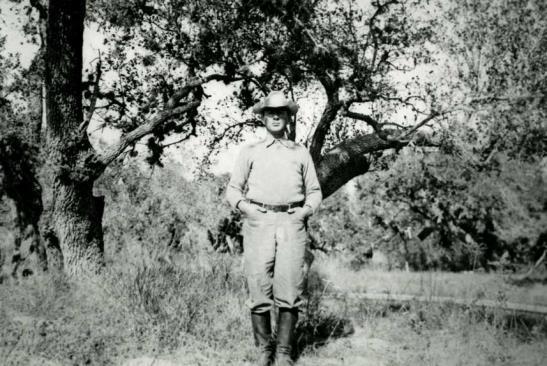
13
Everyone will recall 2014's brilliant It Follows, which was passed on to us from the excellent David Robert Mitchell. Here, the 'loop' structure is used in tongue in cheek fashion to reference sexual diseases. Praise be to this for not constantly resorting to jump scares but establishing a horrible atmosphere via Disasterpiece's score. The intro to the track 'Inquiry' never fails to send shivers down my spine. Thing to note here is that when the track plays nothing overtly scary is happening but the camera drifts around the halls of the hospital and we see a character in another location casually sat in a chair. In the frame, we see no visible threat and still we perceive an invisible force coming. We don't know when but we know it is coming. Nothing loud, nothing irritating just the power of suggestion. If only Smile was brave enough to follow in its footsteps with regards to this aspect too.
Before I forget, David Robert Mitchell's sophomore effort Under the Silver Lake is superior to It Follows. Upon release, an extremely polarising movie, which is clearly destined to go down as the next cult classic. That movie had it all. Nods to Hitchcock, Carpenter and Paul Thomas Anderson. Marlowe noirheads like myself will find it irresistible. I'd even go as far as to call it Pynchonesque with the post-modernism and popular culture dissection. It even features musical clues as though occupying the same world as The Crying of Lot 49. Those who haven't seen it, time for a viewing. Those who have and weren't so keen, time for a re-evaluation.
Many will come rushing to Smile's defence (as they did with the equally abysmal Joker) on the grounds that it uses the common formula to comment on the timely issue of mental health. Firstly, it's pretty light in that department and too dumb to be accepted as having anything decent to say on the subject. Secondly, don’t you dare give this any credit for using the 'loop structure' from Ringu and It Follows to discuss mental health. It had already been done. Cast your eyes to indie banger She Dies Tomorrow.

Our good friend She Dies Tomorrow combined mental health and the familiar formula a few years before this Smile shit. Not calling it a masterpiece for a second but the way Tomorrow nails its tone for the full running time is so admirable. Wrongfooted would be the word I'd use to describe the experience. It holds you down with a particular emotion. Depression is obviously a big part of it but it handles the matter with this kind of rare indifference. Its characters accept their fate with a stoical stance and so you're constantly put off guard by it. Unsure how to respond to what you're seeing in the best possible way. On the other hand, Smile deals with the issue in the most straight forward manner possible.
Aside from the 'loop' formula, Todd Haynes's Safe is a genuine masterpiece. Although, not openly a horror movie it is frightening in a way Smile could never be. Depression and anxiety is a lot less refined. Safe's touch of genius is never fully trying to explain the horrors involved. You can't quite express what it is but you know it's there. The perfect document of what it's like to live in the modern world. This came out in 1995 and has only grown more relevant in the last 26 years. Lars Von Trier's depression trilogy is another one to compare to. He shoots depression exactly the way it is with Melancholia. A character so out of touch with the world and suddenly feels right at home when the worlds ending. Their internal environment becomes the external.
Going back to Hideo Nakata, only the other night did I finally see Dark Water. Returning to J horror reveals the difference between the Japanese and yanks. Japanese shoot their ghosts in near darkness with limited lighting. They're usually hidden in the shadows or behind long hair. This technique allows you to project more on to the ghosts. In the same instance, they can be shapes or tricks of the light and your deepest fears. Each viewer sees something very different in the darkness. Your imagination fills in the missing details. That's how these ghosts become powerful figures.
14
Americans are guilty of defining their ghosts too much. Therefore taking all the intrigue and horror out in the process. The fully formed apparition loses its terror because it bears no personal or spiritual significance. You can't project anything on to the ghost on screen. You're taken out of the film world accepting it as just silly. Leads to generic cinema with the yanks failing to address what you're really scared of. Who's ghosts smile at them? Why is this so common in cinema? Pack it in yanks with the close ups of silly shit like smiling for the love of God. Honestly, if depression was as simple as its depicted in this film, a shouting muppet and Marilyn Manson figure crawling across the walls, depression would be a lot easier to overcome.

Only under one condition could I ever have allowed them to get away with the smiling was if Julia Roberts was cast in the central role. Of course you'd naturally have to change the title to 'Cryle' and make it this meta parody of her most famous facial expression. You know the one. That smile she pulls but on the inside you know she's crying. The very thing that makes us love her. Imagine a movie like that called Cryle Something that works on multiple levels away from this very literal horror we get these days. Horror works best when you have multiple responses all at once. None of this going for simple scares all the time. I want to be appalled, blown away, horrified and ashamedly giggling all at the same time. Stop playing everything so straight!
Who wouldn't want to see Julia Roberts in a horror? Get that fucking horny bastard Gere on board as well. Pretty Woman and Runaway Bride slap you know. Yes you heard me correctly. That includes the latter of the two cause some of you fools think it don't. Richard Gere and Julia Roberts could announce they were teaming up again tomorrow for any project and I'd be at the cinema as soon as it arrives. Gere the blinking and breathing heavily boyfriend. Roberts the Cryle girlfriend. That's chemistry baby. Every time they team up it's the stuff of legend. Wine consumption goes up and fucking increases across the globe.
Come to the conclusion, Smile is not really a movie at all but rather an assortment of random jump scares. There's no proper story and everything just seems designed around the jump scares. An assembling of parts of other horrors from the last few years without a drop of originality. Not that horror always has to have substance and originality but this shits taking itself way too seriously to be even considered remotely fun. It's noisy and irritating, serving primarily as an excuse for jump scares. Therefore, discussing mental health and Smile in the same sentence is to give it undeserved credit as its clear what came first in the making of the movie.
As a narrative it doesn't even work anyway. Think about it. The thing that drives the protagonist is her guilt which resulted in her wanting to be a psychiatrist. There's this disgusting scene where she goes on a meal out with her sister. Starts going off on her duties to people, which she declares that she would do for free. I was like oh come get over yourself, did you just happen to walk in to money on the way? I've seen your house, bird! Anyone can say they'd do their job for free when they're getting all that. This cunt even left a regular guy on lower salary living in a standard flat and straight in to a mansion. Doesn't really add up babe. Ok you could tell me there was this dark side in her that gave up that life, she didn't think she deserved it and directed herself towards another abusive relationship but was that really explored in the movie? It didn't really find time to fit it in with the jump scares. No chance this film has even the first idea of what trauma really is like.
15
About the only thing close to acceptable in Smile is Utopia legend Cristobal Tapia De Veer's score. Hearing this separately would be wise because you might miss its great qualities in this shit heap. My man's work is ruined by some dreadful sound mixing. Any time Cristobal's score is attempting to suggest some atmosphere, they come in with a random loud bang to unnerve you. All I could think was still cranking that music up loud in the year of our Lord 2022 because you can't deliver on the visuals? How pathetic. Thought we were past this malarkey seen in previous Conjuring movies.
How can you draw our attention to invisible menaces lurking when you're constantly breaking the action up like this with erratic editing? Can we please go back to Ridley Scott's Alien with long takes and cameras drifting across spaces? It's insulting that these studios think our attention spans can't handle such an approach any more. Also, if you have to get your audience responses by increasing the volume to such an extreme that's cheating to me. You don't earn that. The ears can only take so much. It's cheap. The effect is like being punched, you're blatantly going to react to that.
Smile did actually have one moment that almost put me on edge. Namely the scene when the protagonist is in bed and a voice calls her off screen. Finally, a slower scare that takes its time! But what do they go and do? If you guessed throw in the most mistimed and pointless jump scare you're on the ball. For no reason at all, they jump to the next day and the protagonist is nearly run over. I'll admit sometimes the jump scare can be an effective tool to cleverly and seamlessly connect scenes. See Gordon Green's Halloween when the Jack White looking fella blows up a pumpkin and it cuts to a locker being slammed in a different location. One or two of these well timed jump scares can be effective but for the whole movie? You're having a laugh! Smile has one of the worst jump scares I've ever seen in the history of jump scares. I refer to the sister's head spinning. Definitely one of the dumber things I've seen in the cinema all year.
This loud approach, ruined another scene where they go to see a guy in jail. At first watching him explain how he beat it was beginning to come creepy and when he slowly realises it's back in the room it grows painfully unsettling. They shouldn't have gone back to loud laziness with him screaming.
Destroyed a perfectly good moment. Being scared doesn't mean you have to go loud all the time. This was an opportunity to go quieter, the actor had it in him too because that's the way the scene started. He proved himself capable. Why couldn't they just let the camera roll on for longer at times and let Cristobel's score do its magic? Do the filmmakers have no confidence in their abilities? Where's the motherfucking dread?
Everything considered, the film becomes an accidental parody. Those that are liking it, I could only understand it on those terms. You've got to be laughing it at to enjoy something like this and if you were able to do so fair play to you. I'm sick of the whole haunted hay ride/haunted house style of horror. Those things are great in real life. Always up for that shit every year come Halloween but in cinema it doesn't exactly translate well. This gorehound doesn't go for it.
How Smile isn't being talked about as the death of jump scares I don’t know. If they were ever good, their time is certainly over. I'd have expected this one to kill them off but I guess we still have the final stage of any genre as mentioned earlier, the intentional parody. We're getting towards that point if we're not already there. Mark my words, it's coming.
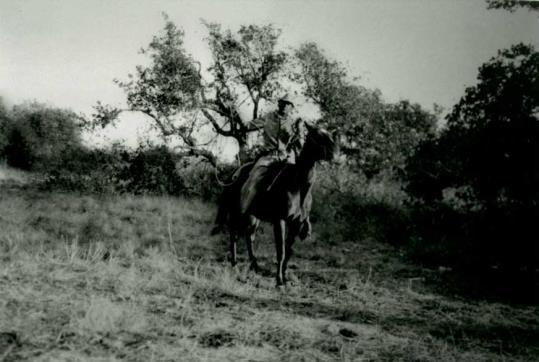
16
These jump scares are also called 'cattle prod' scares after Texas Cattle Baron Robert J. Kleberg Jr's wonderful invention back in potentially the 1930s (the exact date is undecided). Perfectly sums up the experience, which is like being poked with an electric stick for 90 minutes. For fuck sake, why didn’t the studios realise when we said we wanted these horror movies to be more like The Texas Chainsaw Massacre we did not mean remakes and we didn't mean turning tools of the meat industry in to cinematic identities either. How on earth did this happen?
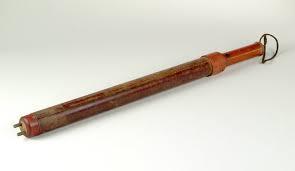

Oh well. Either way, times coming for this awful type of movie, since I don't like to be a moaner though I'll agree to it going out in style. Here's the way I'd do it. We need to go back to the beginning to Mr Kleberg himself. I'm suggesting we make a meta horror fictional biopic about this guy. We go out acknowledging the guy that started all this. Someone gets cattle prodded every five minutes on the dot. Loudest sound effects ever. Ear drums decimated. That intentional self-parody will be the final nail in the jump scares coffin. Richard Gere is playing him and his wife is going to be, you guessed it, Julia Roberts.
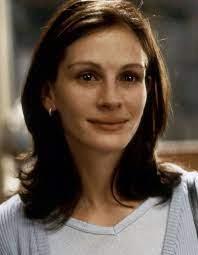
Bonus Points:
-Utopia legend Cristobal

Tapia De Veer's score
-Verging on unintentional self parody and bringing us closer to the eventual death of jump scare dominated movies
Overall Score: 1.5/5
17
Someone's Been watching their Bruno Dumont
Taking a break from Bonehead Bill. That geezers too heavy for me. Ended up belling Long Tall Sally for a quiet night in to watch Speak No Evil. Another Dinner Table horror from this year. A solid one too, which serves as a parody of politeness. Basic story is a Danish family forming a bond with a Dutch family on holiday. They hit it off so well the Dutch family ends up inviting the Danes for a round 2 back at their gaff. As usual, it's a game of waiting for the big reveal with these Dutch folk not being what they seem.
This one really takes its time before the expected turn, which did some favours for LTS because she did not like the final act at all. That bird didn't even have any nails left by the end of it. She even asked if I could hold my hands front of her face to block it out as her hands were getting tired. Bluntly told her to "fuck off" and she spent the rest of the evening being extremely passive aggressive towards me, so she's probably not getting invited around mine again for a while either. We're rapidly running out of movie buddies. Not good.
Anyway, before Speak No Evil kicks off, it's your typical run of the mill Dinner Table horror with plenty of warning signs that this Dutch family were a little off. A father who keeps changing his stories. In particular with regards to his line of work that will keep you on your toes. There's the red herrings too because the protagonist's family overreact on a few things such as dancing in the boozer and playing his music too loud in the car. That was hilarious. Can't approve of the drink driving but none of the Dutch couples actions on that night out were a red card for me. Didn't even need to go VAR on that shit, just dudes having a good time.

Lines not crossed at that point, hence why those antics were let go and forgiven. Long Tall Sally said the raised volume of music in the car incident was just a "typical evening with Jacob Kelly", which was why she disapproved of it massively. Especially, the moment when the drunk Dutch driver agreed to turn the music down but then laughed and turned it straight back up. LTS shook her head at this behaviour because she had seen it all before.
I swear to God she looked like a disturbed war vet experiencing PTSD. Naturally, I queried what her fucking problem was and she just kept repeating, "You!". All the memories of university gaffs came flooding back to her in seconds. These nights normally ended with myself and whoever I'd rounded up at the party in LTS's basement at about 6am in some coke fuelled stupor blurting out the words to some really stupid '80s pop song like Human League's Don’t You Want Me Baby. Everyone would have called it a night or were trying to unsuccessfully cause Phil Oakey was in their basement giving his greatest gig of his career. LTS never saw it that way, so I assumed she was always more of a Heaven 17 girl. Some people are that way inclined I guess. She would come down trying to give me the boot and get me out the door after various complaints from her flatmates and neighbours about the noise.
Politely, I would promise to switch off the music and leave but then 5 minutes later, I'd hit the play button again and go back in to my rendition of Don't You Want Me Baby. Just like that the whole street would be treated to their sixth helping of Human League that evening. The crowd would get their encores whether they liked it or not. This routine happened quite a lot. I don't know how many times she kicked me out of her place but in hindsight she may have had her reasons come to think of it. It's a miracle we still get along. But when you've got a friend with a voice as good Phil Oakey's you don't pass that up. Anyone want to start a synthpop band?
Most of Speak No Evil is intended as a critique of how we endure a lot of terrible acts from people we're unfamiliar with out of politeness. However, this didn't fully land for me. I was too distracted by another element, which was the Danish Dad's domestication. If you watch closely it is the Danish father's need for escape from everyday life and duties, which drives their decisions to remain there and not leave early as the wife desires.
18
You can tell this daddy wants this so badly. In the male bonding scenes (easily some of the most interesting in the movie), he mentions that he is sick of smiling and wearing a mask for society. Danish dad is looking to confide in Dutch dad and reveal his problems. He wants his new friend to expose him to culture so that when asked about musical interests he can say more than "pop. You know...rock?", as though he's been living under a rock all these years. I'd go as far as to say he envies the Dutch dad's open nature and lack of care for the polite decencies because he so desperately wants to loosen up and be his true self. You bet when the boys settled their differences and had a beer in the hot tub together, I cracked open another beverage and raised my drink. Prompting LTS to ask as she always does, "Do you have to do that every time two guys have a drink in a movie". She got just the one word reply, "Yup"
Fatherhood is a big theme in the movie. We see various types of parenting in the movie from appreciating all artistic endeavours in spite of quality to the kind of violent coaching you'd associate with Joe Jackson. Or 'Joseph' as he forced his kids to call him. The dancing scene is notably strange. Normally, I'd be laughing heavily at that kind of scene, even more so in a Danes hands, but this was so unbelievably awkward, pushing all the buttons. Didn't even know how to respond and then all of a sudden Dutch dad is lobbing bowls at his nipper cause he's got no rhythm. Blew my head off that one. Having a word with the kid cause he hasn’t got the tools I can get. That warrants a strict word. But lobbing bowls at the rugrats head may be going a little too far. Could be time to get child services on the blower when that comes out.
Throughout the 97 minutes, I was surprised at how subservient Danish Dad behaves. LTS and I both in firm agreement for once, that man's a coward. I was sat there like well he's not winning any Dad of the year awards is he. To be clear none of them are but somehow I hate the yellow bellied fuck over the abusive one. Hot take coming here but Danish dad might be the most pathetic movie Dad since Force Majeure.
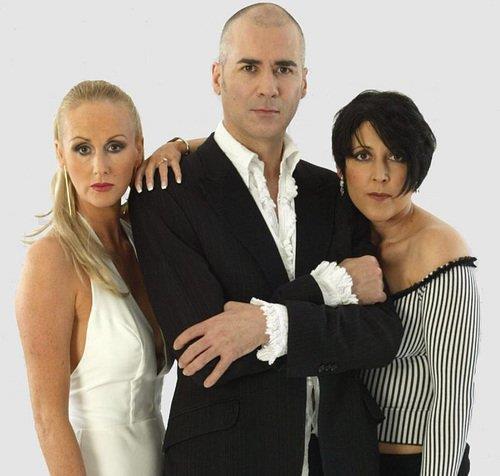
Trust me, if I was there, it wouldn’t have gone down like this. Mark Wahlberg 911 style. I've got fists and I'd bloody use them. None of this "Please mister, don't hurt my family" business. Whimpering will not be tolerated. Dutch dad and his bird, I'll have them out cold in 3 moves. Quick elbow to Dutch dad's nose, dive over to his chair and shoulder his head in to the side window (that all counts as one motion). Then it's the old seat fully extended back manoeuvre to take his bird out in the back seat. These two are finished. As for the other assailant outside the car, a simple roundhouse ought to finish him off. This Danish Dad had no gun on him or anything, never seen such a softy in all my days. This guy ain't got the fucking sand. He had plenty of opportunities to get out but he wanted this weekend so badly. Therefore, this is more a story of emasculated fathers than it is the parody of politeness it was positioned as.
Respect to the filmmakers though, when Danish dad walks round the house one night and the twist is revealed using the old photograph and creepy music technique, it put me so on edge. It took it's time to build that scare by having him walk round the house first, fully earned it. Prefer this to Smile any day. This then leads to that final third LTS found too shocking. Began leaning towards a less commercial artsy ending with ideas over audience satisfaction. LTS lost the purpose of the film during the last few scenes and asked, "What's the point of this? It's just cold, sick and nasty". Told her, "They're trying to do a Dumont". Hearing this she turns her rage at the filmmaker on to me as she snaps and shouts, "Kelly, what the fuck are you talking about?"
Had to explain my adoration for the career of Bruno Dumont. There were clues scattered about that they were ripping off the French director in the male bonding. That one scene when the two Dad's scream into the countryside is directly lifted from Humanite, an abrasive classic of the New French Extremity movement from 1999.
19
Without spoiling it the final scenes of Speak No Evil are actually stolen from Dumont's controversial Twentynine Palms. Difference with Dumont is that his bursts of violence and screaming are a lot more effective because of the way he sets up his narratives and the set pieces involved.
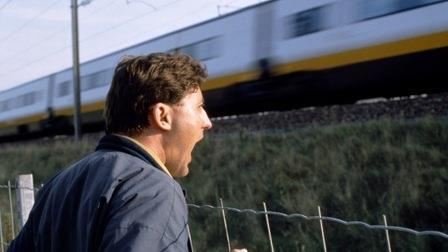
Starting with Humanite, that screaming scene is undoubtedly one of the most powerful moments in the history cinema because it goes right through you. It's about reclaiming the sense of self by using every part of your body you can to prove to yourself you're still alive and fighting the good fight. The narrative is shaped in a way that when this comes, it catches you off guard. You really feel it. Everything is quiet and detached then out of nowhere you get this personal and idiosyncratic moment of weirdness. What begins as a detective story rejects the plot heavy foundations of the genre and becomes a character story.
I know what you're thinking. What about Zodiac and Memories of Murder? Didn't they do that? You noticed I said this came out in 1999 right? Before those two. Bong likes to brag that he was doing it before Fincher but Dumont did it before the pair of them. Better too because when the protagonist screams that is the thunderous roar of not just a character in an identity struggle but in a metatextual sense its cinemas fight back against the trappings of plot over character in detective thrillers. It hits me so hard, every time I see it. A moment so brilliant, it reminds you how to feel.
As for Twentynine Palms, this is a shocking movie which nails its arguments unapologetically and uncaringly but can be hard to respond emotionally to. Was for me anyway. Most people tend to react to it strongly drifting to either side of the fence whether it's good or bad. Makes me respect it more even if I am sat well in the middle.
Conceptually, it's as fascinating as all its supporters say it is with this cool idea at the centre of flipping Chris Marker travelogues (like Sans Soleil) on their head and making this very disturbing road movie. Not as cute and politically stimulating as Zabriskie Point but obsessed with nihilism. Dumont's document of America is film in its most abrasive and utterly repellent form. Stripped back of traditional techniques for maximum repulsiveness. A vision of America in which characters spend the majority of it arguing, fucking and soaking up absolutely no culture on their travels. They do not broaden the mind.
Instead, a fucked up Le Mepris and as good as it sounds better to write about than to watch. Then to top it all off there's the infamous final scene serving as Dumont's final statement on America. A film so effective that is truly horrible to watch. Frequently and lazily compared to Gaspar Noe's Irreversible due to a single similarity in one scene. Twentynine Palms is a much slower movie and comparing it with Irreversible would not do it justice, only ruining what Dumont is trying to set up. Entertainment value is not even considered on this project but it achieves its points with razor sharp consistency.
Dumont's films grow on me after watching. Love them or hate them, you don't forget them. After Humanite he was referred to as the heir to Robert Bresson (A Man Escaped, Pickpocket). Although an admirer of Bresson, the constant comparisons got to his head and rattled him so he went in to Nicholas Winding Refn mode when he made the underrated Only God Forgives. Essentially, for those who only caught Drive and not Forgives, deconstructing his own work, abandoning what was popular and leaving audience satisfaction at the door. Earning him the title of the rogue one.
20
Regardless, it would be ignorant to dismiss all his work prior and after Humanite. Ok so he hasn't had a classic since Humanite, I'd still draw his critics attention to his dedication to niggling away at the capabilities of cinema and in the process creating his own way of talking far away from boring traditional narratives. It's so refreshing each time to see him reject dialogue and tell stories through movement and his characters inability to communicate. His treatment of locations in his films always interests me too because he's so at one with them expressing that in a way that isn't common at all.
Dumont favours writing novels for his films over screenplays and in doing so he captures those large descriptive chunks of texts you get so wonderfully in books but can be lost in translation to screen. His camera does all the work in revealing minute details about characters and their environment. Hors Satan and La vie De Jesus were incredible at doing this. It's purely visual and that's what makes it so rewarding on rewatches. Perhaps you weren't acquainted with his method of talking but once you begin 'speaking the language' it all comes shining through and the material so rich in ways it seemed inaccessible previously. It's like he speaks in code and suddenly once you get that one word to break it, you're off and running in his world and you never look back.
Trust me, he's a one of a kind filmmaker and his tweaking his own language is something that has come from years of experimenting. So this
Speak No Evil director Christian
Tafdrup was never going to master it with such little experience and his work comes off as imitation with limitation. If it appears as though he lost the movie in its final scenes it's because he never fully a grasp on the films themes in the previous acts and wasn't able to explore them visually to their full extent in the final third. Possibly, the problem is that the film is unable to decide what drives its characters politeness with strangers or weak fathers. It can't quite figure out what it wants to be.
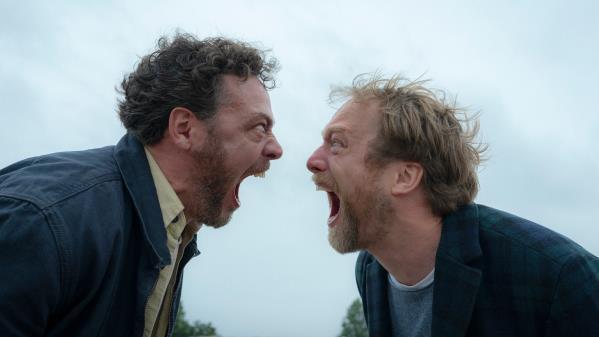
Flawed? Sure. Yet, it's audacity struck me. Would have preferred the final images to be more shocking and bold with tighter control over the narrative prior to be effective. In these tame times though, going for what they did got my attention. We could have a decent filmmaker on our hands given time to grow and work on their storytelling and cinematic language. The skills will come, I value the desire to try to be as bold as Dumont. Maybe it didn't quite achieve the cold distance and shattering truths on this occasion but fair fucking play for not tying this up in boring fashion and going towards corporeality. A few more films and maybe this guy can be a Julia Ducournau.
That 'tongue' scene is enough to unnerve any parent but would have had more impact on me if the dad wasn't such a wimp. This may have been the point at which I went on a long rant to Long Tall Sally about my thoughts on masculinity and how surely anyone can locate their inner violence if Dustin Hoffman can. A man has to stand up for what's right. Poetically, I went in to saying, "If a man can't find his inner Straw Dogs, then he deserves to have Speak No Evil happen to his family". LTS didn't really bother listening to what I had to say about this issue and interrupted me rudely to ask whether I wanted to "go to a massive Halloween party in a few weeks?" Fuming that this cunt of a companion did not want to listen to my insightful lectures on masculinity, I exhaled loudly but still muttered, "Ok, yes I'll come".
Bonus Points:
-The filmmaker watching his Dumont
-Dutch Dad and Danish Dad having a beer together in the hot tub
-The reveal with the pictures on the wall
Overall Score: 3.5/5
22
Has Sorkin done the most damage to America's political beliefs since DW Griffith?
Aaron Sorkin's 7 season beast is the keys to the constitutional and democratic utopia. A careless championing of the parliamentary process. Beyond anything you could ever even imagine, the most flawless presentation of that system possible. Yes, The West Wing is literally the future liberals want. Do not for one second think I am exaggerating this. A few episodes of this shit will have you scratching your head thinking, "Hold on a minute. When did I die and wake up in liberal heaven?"
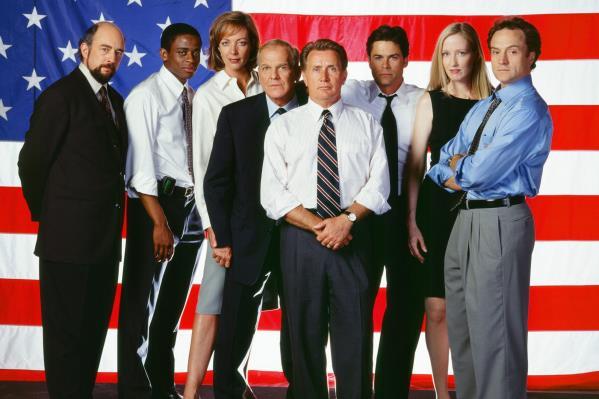
This absolute blatherskite came out around the same time as the Bush administration and if it didn't it wouldn't have been as successful. What we're dealing with is a nation of dudes down so bad that Clinton didn't get back in so they're going to pretend he did on screen. That is the only answer or explanation I can provide to address what compelled them to make such bubbleheaded bullshit. It's like Sorkin woke up one morning, saw the news and went, "This is not my beautiful White House!". So he goes and reshapes it on the telly every week positioning his fellow liberal losers as the good guys saving the country. A wet dream for white collar centrist 'intellectuals' to sit back and go, "imagine if there were some good guys in office".
Eerily it's similar to Jordan Peele's Get Out, in that the show genuinely has a token black guy, a fatherless newbie shepherded around the White House and clueless as these decent gentlemen take him under their wing and offer him 'opportunity'. That foul and overused American word. Sorkin is perceived as having 'wit', which literally extends about as far as writing dialogue which bounces back and forth rhythmically with a touch of wordplay. Sexually stimulating as that may be, even to myself, it doesn't mean his grasp on US politics is particularly smart.
As tremendous as the guys verbal acrobatics can be, it seems 'selfawareness' isn't in the man's vocabulary. Making this a strong contender for the most smug show to ever hit the small screens. To be absolutely clear, this is not the White House, this is liberal heaven. In all this ridiculousness, you have to wonder did this liberal fantasy shape a whole generation?
At the same time, I'm sure there was some novelty in the format presented here. Seeing the daily lives of staffers is an intriguing concept and should in theory always lead to exciting television for being so head on, direct and zeitgeist. Sure, the technique has its detractors but for the most part I have generally approved and supported the Sorkin 'walking and talking'. In his hands, a tad overused and obsessive but as a tracking shot enthusiast it can be a guilty pleasure. That's not to say Sorkin's style hasn't had its fair share of moments where it has worked and been a worthy contribution to the linguistics of cinema. Alongside I'm Not There (discussed in issue #3), the Steve Jobs Biopic is another entry in the biopic genre from recent years which deserves a lot of acclaim. Through Sorkin's style it escapes the clutches and confinements of the biopics A to B dull formatting.
The genius of the Steve Jobs film is that it takes the two things that are most important in his life (work and family issues) and plays them out in the most stressful location and time imaginable: the vital seconds before and during his product premieres. Scenes can be set either on stage in front of the public or back stage away from the public. I cannot think of a better way to illustrate the duality of celebrity in more immediate fashion.
23
Especially, when dealing with the kind of person who's work life is so immaculate and praised and his private life is anything but these things. Once again, my interest here may be strictly Fulleresque. Hard to deny though his film moves fast and with the set up there's little in the way of filler as it rapidly jumps between its two competing themes at the centre of its narrative conflict. Through the walking and talking tracking shots these two worlds collide and become one and against Jobs wishes connect. Who better to direct than a filmmaker who's style reeks of ADHD? Danny Boyle and Aaron Sorkin were undoubtedly a fantastic match.
An equally fantastic match was Sorkin and Fincher for The Social Network Both these films are massively linked in being about immediacy, technology and unlikeable celebrities. Upon rewatches now Social Network seems like a horror movie which predicted the future. Justin Timberlake giving a sermon at a house party whilst a line is being racked up on a birds chest about how, "we lived on farms, then we lived in cities and now we're going to live on the internet" just seems terrifying in its actualisation at this point.
Remember as well where the scenes are set when that pathetic worm of a man Mark Zuckerberg is first seduced by the realisation that this idea of his could be worth billions: the club. A place of pure hedonism. You cannot fault Sorkin for his sense of timeliness. Even with West Wing coming out when it did, he seems to have a solid sense of where culture is going at any one time. Curiously, I wonder does this guy merely jump on these trends or does he push them forwards and dictate the future? A scary thought.
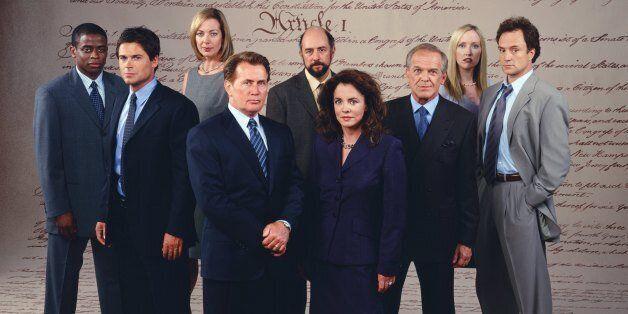
Analysing Sorkin's work so closely you may think I walked myself in to a trap of demolishing auteur theory. Allow me to now debunk this like the other week with Charlie Kaufman. Turn your attention to his directorial efforts Molly's Game, The Trial of the Chicago 7 and Being the Ricardos. When Sorkin directs he tends to lose the characters and his central conflicts.
Those who deem his dialogue to be purely mechanical would be proven right with these films. A literal image to bear in mind would be Bobby Seale's removal from the court room in Chicago 7, that's what watching Sorkin's directed films is like. Right when somethings about to get interesting he loses his grip on characters. Molly's Game does not have the slightest idea what to do with its central character. She organises illegal gambling but she can Skii so she's really strong and good natured? I mean what the fuck are these films actually about? Chicago 7 after Seale's departure is just a bunch of white guys wanking themselves off in a court room whilst the black character is removed from the conversation entirely.
Look, I've told you what Steve Jobs and Social Network are about. I can tell you Moneyball is about statistics and technology corrupting sports and taking from human achievement. That film never loses the human angle with the father/daughter story. A relationship re-used in Molly's Game but when Sorkin directs the points being made become lost or downright silly. All his films are usually about figures lost between technological advancements and staying human in the process. It's a battle he tends to lose when he directs because he can't quite cover both. His own films become these toothless ramblings, either lacking the heart of Moneyball or the cynicism of Social Network.
The sequences themselves which are sturdy on the page look sloppy on the screen at times. Compare the party scenes of Social Network with the card scenes of Molly's Game. Fincher operates at a level of Godly precision, Sorkin noticeably off-beat. He doesn't have the tools, the fella has not mastered his cinematic vocabulary and so his style is restricted to the page.
24
Fincher's much sharper bringing out the academy award winning Nine Inch Nails score at just the right times. He is capable of addressing the darker sides of Zuckerberg and still manages to leave you on this Roman Tragedy like image of a man sat on his throne but all alone without a single decent friendship left. Therefore, Sorkin needs someone like Fincher to prop him up and convert his screenplays into the finished movie. This leads me in to thinking Fincher is really the 'artist' of the film since it doesn't function as one without his presence.
I can only hope that Sorkin has decided to once and truly step back from the director's chair. Otherwise, what has been proven already will continue to happen with these failings to correctly navigate his chosen terrains of technology and humanity. Each directed project will either be too cold, too wishywashy or potentially worse -nothing!
I'm yet to watch his third film Being the Ricardos but from what I gather even the critics have turned on him. I doubt he will direct a fourth.
Unfortunately for me, television is a writers medium, leaving West Wing home to all the worst elements of Aaron Sorkin. As for the walking and talking though, in the case of West Wing, it does generally work. I'll give it to him, he found a great way of making an office show punchy and always on the move (albeit taking the last part far too literally). So genre wise, its generally a good addition and well suited to maintain your attention as a TV show needs to do with multiple seasons.
Another contentious factor of Sorkin's work is the dialogue. As I've already mentioned, on some level it's music to my ears. Except, when you actually listen to what's being said, it all falls apart. Like shoegaze, the aural effect is better or more impactful than the lyrical content.
Firstly, with the near overlapping dialogue characters begin to roll in to another and become indistinguishable. It becomes too perfect at the cost of individuality and realism. Irritatingly satisfying without any effect whatsoever, collapsing under the weight of its own implausibility. The White House becomes a place for perfect controlled debates, an extension of the ideal school classroom. A fully refereed event in which no-one would ever fight dirtily. The press wait their turn and ask their questions politely. A raised voice in this place could get you thrown in jail.
Honestly, I went from really hating this show to being unduly curious and then to some degree, liking it. The perfect formula is laughable once you get in on its workings. Witness the most controlled arguments which always reach their 'logical' conclusion. A world in which people go in a room, engage in debate and come out another person. They are proven right or wrong and they accept this, vowing to change not just their strategy but as a person. We're dealing with people so stripped of their alliances and leanings in some state of postpolitics. A horrifying defeat of intellectualism over ideology. None of its even remotely believable.
For example, you'll have our honourable democrats speaking with a few republicans about a particular issue. No-one shouts, speaks over or disrespects the other party. Both people engaging in conversation keep their cool and carry out the argument to its resolve. By the end of the scene, the 'wrongful' party sees the errors of their ways and the debate is settled to never be resumed again by anyone. The topic is done. Our loser humbly looks in to the eyes of his respected opponent and pretty much thanks him for his new found righteousness. The nasty offender has been taught a lesson but remains sporting as he exits the room. Like clockwork, the winner is rewarded in some way in the next scene as a prize or doggy treat for his stunning achievement. The show follows this formula so closely and consistently it's amazing.
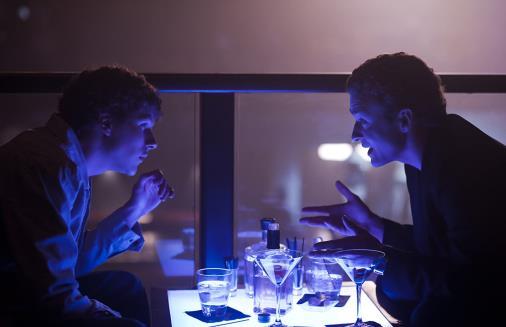
25
Due to the nature of this format, the arguments involved come no more meaningful than a blinking contest. This is exactly where I begin to like it in how unintentionally silly and juvenile it all is. Instead of old western TV shows with duels, each week we get these clowns sitting in a room exchanging carefully selected words with their opponents. All well and good Sorkin but where do you plan on going with all this? How can a television show about God's perfect people ever have any shot at growth or character development to sustain itself for multiple seasons? Or did you forget this you little muppet? Must have because the buffoon ends up walking after about 4 seasons and it's meant to get progressively shitter. Even watching half of the first season it became clear this was boxed in with nowhere to go, so settled for more of a dull repetitive sitcom. Imagine Friends in the White House.
West Wing had me craving for the pantomime evil of Kevin Spacey in House of Cards. Jesus, always heavy when you're saying to yourself you know what would really improve this situation: Kevin Spacey. Granted, House of Cards does seem as plastic and unrealistic a portrait of politics as West Wing but thankfully it’s a little more self-aware and sceptical. West Wings low stakes had me craving the slightly more twisted perspective of Frank Underwood and his brand of mischief. At the bare minimum, something honest. I'm sure nearly anyone who's ever been in office would discuss their 'regrets' during their time. These are people who play dirty games and have to live with the consequences. It's a charade, which West Wing takes far too literally. The 'R' word doesn't even come in to play in a world like The West Wing –no, that would suggest doing wrong and shatter this illusion.
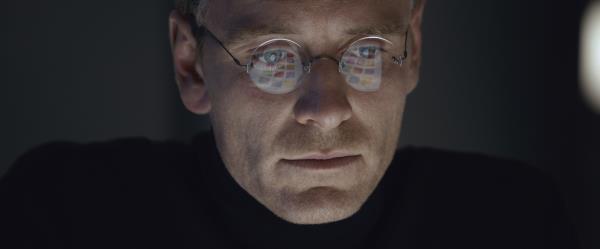
Over the water, Armando Iannucci has similar political leanings to Sorkin except his show The Thick of It has a tolerable amount of self-awareness and its genuinely really funny. Equally honks of liberalism but a raving Peter Capaldi makes for incredible comedy set piece to set piece. I'll take that over Sorkin's smug shit and so called 'wit' any day of the week.
Ironically, so many of the beliefs of characters in West Wing do mirror people's own today. Did the show influence their ways of thinking or vice versa? Even in this utopia where domestic policies are somewhat reasonable, amusingly foreign policies are still aggressive and dodgy. Inherent hypocrisy even in liberal paradise? I guess it's inevitable. Pure Hilary Clinton shit. The show becomes so textbook everything it is and believes in. And that is exactly why it grew on me out of nothing other than intrigue. It's predictability will give your chest a good work out as you go in to fits of unrestrained laughter. The West Wing is a hotline straight into the minds of liberals. If you want to know how these people think all you have to do is watch this show. Five minutes and you'll know all you need to. It's the liberal manifesto. Honestly, a nailed on masterpiece.
Right so with all this in mind here is how you enjoy West Wing. Get a drinking game going. Ok, rules?
Kelly's rules:
1. Drink every time there's a tracking shot
2. Drink every time Sorkin illustrates his 'wit' or 'wordplay'
3. Drink every time someone wins an argument
4. Drink if the opponent looks humble in defeat
5. Drink every time someone is rewarded for winning an argument
6. Drink every time the most stupid policy ever is discussed
7. Drink every time the annoying patriotic music plays
8. Drink every time there's a pathetic uplifting speech
9. Drink every time you start eye rolling because a character has the most liberal take you've ever heard
10. Down your drink when someone makes reference to the constitution or the bible
26
I swear to God, if you follow these rules, you'll be thoroughly drunk and having the time of your life as I was with this piece of poppycock. My guess is you won't last two episodes before passing out. Suddenly, this humourless show will become hilarious. Needs to go down in history as the greatest unintentional parody of liberalism. You'll zone out, hear something preposterous said by these 'intellectuals' and just be like "What?!". And just like that you zone right back in again in to this uninterrupted and unchanging debacle. You never miss anything with these guys. They're back every week like a never ending sitcom. They sit in a room arguing they're right to the death.

Oh and remember the centrists code: the middle path is always the best path in any given situation. Context is unnecessary. Who needs left or right when you can be these little bastards who are never wrong? Now, this may take time but when you do accept this, you'll be converted on this crap. I just thought of the best way to sum up Sorkin and his lovely familiar background hum. Good on the ears, good on the eyes and a pain in the brain!
Bonus Points:
-That is literally about it
Overall Score: 2.5/5
-Being a hotline straight in to the minds of liberals
-Walking and talking
-Goes well with drinks if you follow Kelly's rules
27
Sliver is a naughty little erotic thriller from 1993 written by Joe Eszterhas, squeezed in between Basic Instinct and Showgirls. Released to horrendous reviews and unfortunately time has not been any kinder. A wickedly underrated ambitious little fucker which has been dumped on the endless pile of forgotten about '90s mainstream sexploitation. Naturally, it has been picked back off the pile by this Psycho-Schradist and raised to the skies like an Olympic gold medal. It got away from your clutches once and as long as Jacob Kelly remains on planet Earth, it will not happen again. Pardon, the overused expression but there is more to this film than that which meets the eye. An all too fitting expression considering the content.
On sexy stupidity alone there is enough here to satisfy your simplest of needs. For starters, this is Eszterhas's reunion with Goddess Sharon Stone. That alone warrants a single viewing. Who wouldn't want to see Miss Stone riding men into submission whilst Massive Attack's Unfinished Sympathy blares on in the background? If that is not yourself, then I simply cannot trust you as a fellow human being. This is not a matter of orientation but artistic appreciation. Gazing upon this divine deity in the act is an experience comparable only to first laying eyes on the Mona Lisa or Sistine Chapel.
The Great Pyramid of Giza. The Colossus of Rhodes. The Hanging Gardens of Babylon. The Lighthouse of Alexandria. The Mausoleum at Halicarnassus. The Statue of Zeus at Olympia. The Temple of Artemis at Ephesus. King Kong. These are the 8 wonders of the world. In reality, there is an additional one and I am firmly proposing that Sharon Stone be considered the 9th wonder of the world. To say that she is one of God's finest creations would be to do her an injustice. Put correctly, she is God.
Psycho in the Digital Age: Erotica,
Watergate and mass surveillance

How can I put this any better? To witness this baddie in action is to see "attack ships on fire off the shoulder of Orion" and "C-beams glitter in the dark near the Tannhäuser Gate". Referring to this woman as a 'damsel in distress' would be extremely foolish and could well end up being your last move. If you make the mistake of thinking she is, that is because she wants you to think that. Truth is she's always in control, the option to strike, her choice. In Sliver, she gets to play with this persona more so than before. We're told early on that she divorced her husband after years despite problems. Knew this would be relevant. This is a girl who waits. She pretends she's powerless and weak. Then she Gone Girl's you. Patience is her weapon, you never know whether she's affected because all of a sudden, she's back in control and always was. An entrancing snake, the moment you interlock eyes, you're already dead.
She scoffs at the 'manic pixie dream girl'. She's not here to teach young boys lessons. Her mission: Seduce. Humiliate. Kill. In that exact order. Knowing this agenda will get you nowhere. Nobody can resist her tricks. You may be a player in the game but know that it is her game. She's the queen and you're nothing but a pathetic pawn, given occasional attention but sacrificed in an instant if the situation arises. If you feel your manhood threatened, take comfort in that you never stood a chance.
No matter my efforts, the words to describe the power of this actresses screen presence do not exist. You watch and you know. That's all that matters. Every glance at the camera is aimed directly at your soul and she never misses her shots. Every shot a kill. She puts Leon: The Professional to shame.
28
For lack of a better expression, she pulls another Basic Instinct in Sliver. By this we're talking expansion of public nudity kinks. In this infamous and indecent scene, she daringly exposes parts of her mouth-watering flesh whilst on a date at a public restaurant. It's total tease. Worthy to send any disciplined man or woman in to disconcerted delirium. Fellow daters on an ill-conceived night of romance can only watch, appalled as they catch glimpses of these perfect structures. Men with gold struck eyes given free tickets to see pinky-peach sights as bold as The Great Temple of Ramesses II. Women shaking their heads with disapproval as though the antichrist has made his presence known. These men will later be disciplined and their crimes punished. Audiences will be reminded, even though they didn't need to be, that we are dealing with a celestial being.

Humorously, Stone's date for the evening is William Baldwin or 'Baby Baldwin', as I took to calling on account of him being Alec Baldwin's younger brother. Another suitable nickname would be 'B-Tec Baldwin'. Although, I've never been a huge fan of such a phrase, always comes off on the elitist side but 'Lidl' or 'Aldi' Baldwin doesn't exactly have the same ring to it, does it? Perhaps, 'B-Movie Baldwin' will do in this case. Despite Sliver being a Paramount production, it certainly does have that feel. Especially, considering it's director Phillip Noyce is best known for his actioners and thrillers, which blatantly rip off the likes of James Bond, Jason Bourne and Seven. Do not take that as a diss, I happen to really like them! In particular, I liked his honest reasons for signing up for Sliver. At the time, he remarked, "I liked the script a lot. or at least, I liked the idea of jumping on the Joe Eszterhas bandwagon"
Of all Eszterhas's scripts, this could one of the most wide reaching and brave. Whether you could call it intellectual or successful is another thing. Mostly, I'm compelled by the audacity of the project. Sure, it may fall short of its targets but there's something so unavoidably funny about attempting what the film does. At the bare minimum it will leave you curious and hungry for more. On a basic level, it's a reworking of Psycho with a modern techno twist borrowing elements of JG Ballard's High Rise. A group of young aspiring professionals suddenly clustered together and a society beginning to form in a near parody of sitcoms. The mysterious owner of the high rise is a perverted Norman Bates type, who with the fresh facelift has moved beyond peepholes and in to CCTV. Instead of Bernard Herrmann's haunting classical score, we have Howard Shore's electronic sounds creating a neat nineties package.
An obvious issue with Sliver is that much of it was ruined by cuts in post-production. There were fights involved to escape the dreaded NC-17 rating. If only they had been braver and not taken a pair of scissors to this one. Even I can't deny the effect of the sensors ruins a lot of the proceedings. Results in only about two steamy sex scenes (luckily steamier than most), a pacing problem and sabotaging of the Norman Bates angle. Irritatingly, the identity of the killer had to be changed because the original ending apparently didn't make sense with the cuts. Where it annoys me is how it sacrifices that Psycho update. Becomes blatant too because you can tell they were working towards having a Mrs Bates influence with a dominating mother backstory. All that topples with the changed direction, leading me to one simple demand, "Paramount release the NC-17 original cut!"
29
Unexpectedly, I can get over the reduced sex because firstly Sharon Stones in them making them a delicacy and secondly, while it wasn't showing sex, this one had a few ideas up its sleeve. Throughout the late '80s, there was growing talk of the increased CCTV installation and by the '90s this fascist dystopian police state was becoming more of a reality. As usual, crime and threat to public safety was touched on as a fear mongering tool to sway the masses into complying with the installation of these cameras on every street corner. Eszterhas jumps on this knowing full well how hand in hand sex and surveillance go.
When it first settles in that's what the film was going to be about and they have these people walking along followed by a CCTV camera, I was thinking that's a great way to subtly introduce the technological side of the movie. One of those moments of clever framing and mise-en-scene where you click on to it and are like, "right I see where you're going with this. Tried to sneak that by me did you?". Disappointingly, the dialogue becomes too obvious and on the nose. An older man gets all sleazy and pervy rambling on about his obsession with photography. Ruins the integrity of the scene. Then again, these kinds of films are not exactly known for their subtlety and it's hard to remain annoyed. Therefore, it's not necessarily a bad choice and one that can be forgiven.
Now for arguably the most humorous aspect of the film, Sliver is intended as an allegory for Watergate. Recording and watching is explored in the sexual sense with the entire high rise being fitted with microphones and cameras. The guests are being spied on from the high tower like it's The Truman Show. You could imagine the architect from The Matrix walking in at any moment. If you think me calling the high rise an embodiment of Richard Nixon's dirty tricks department to be reaching, pay close attention because there is a reference in there.
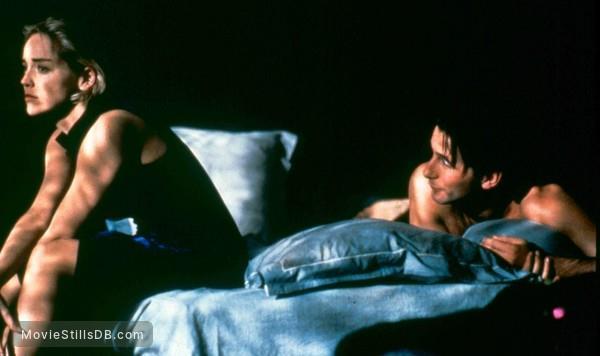
In Eszterhas's hands, watching and recording our opponents is a power anyone could be seduced by. The desire to observe without punishment too strong to resist. If it's there without penalty, we shall take it. A human instinct that extends beyond the illusion of ordered society. That horny screenwriter gets some mileage out of this ridiculous analogy. Sliver operates at the perfect level of dumb and intellectual –the ultimate goal of any erotica.
Is it inevitable that the film seems to predict the mass surveillance of the post-911 Bush administration? Was Eszterhas trying to warn us something? Not too long in the distant future our civil liberties were going to be exploited by the president and his puppet, Tony Blair. Another one pushed again through fearmongering this time with a perceived foreign threat. Where were those bloody Weapons of Mass Destruction, Bush? When is Tony Blair going the Hague? Those wanting to know exactly what would come next should watch the rest of this thrilling series. Red Road, World Trade Centre, United 93, The Dark Knight, Zero Dark Thirty and The Ghost Writer are all belting sequels to Sliver. Except remember Sliver did come first and was way hornier than the follow ups.
Anyone who caught Watcher from earlier this year would be wise to seek Sliver for how this game should be done. Ok, I'll play along for the fans of Watcher, the movie started on the right path by combining Rear Window and Lost in Translation However, right when it was about to get real interesting it stops. I refer to the scene when the watched woman and her stalker sit opposite each other on the train. Finally, they talk to each other. The watcher reveals that every night he stares out his window and people watches the flat opposite. A ritualistic act, which had gone unnoticed until the protagonist gazed back. Firmly believe they could have taken this further.
30
They needed to address how she secretly felt unconscious levels of adoration for the attention. After all, she was lonely out there in a new country, spending afternoons on her jack jones. Also confused why you bring in Karl Glusman, known primarily for playing dickhead boyfriends in Gaspar Noe flicks, and don't have him kicking off more. He's Mr Dickhead boyfriend, if he comes out looking better in a toxic relationship something has clearly gone wrong. You have that persona there and you don't use it. Crazy. She definitely should have been rattling him more by returning the watchers gaze and playing up to it. That would have gripping.
In fact, that's the great failure of the movie, it's called Watcher and whilst reasonably well made by young talent, it doesn't have the balls to suggest that may not refer to just the villain. Another tame outing in modern times. They simply bore me. Want that shit sizzling like it's been on the stove for hours, going back and forth like Hannibal Lector and Clarice Starling. Otherwise, it just don't appeal to me or hold my attention at all. Lacks the essential mischievous edge. This is where I respect Sliver, Sharon Stone loses herself in the watching. She's the real watcher.
I'll round this off by saying, dumb forgotten about erotic thriller Sliver, teaches us many things. Notably, if a guy has not just one but a spread of Nine Inch Nails's The Broken EP posters across his walls, then girlies maybe he shouldn't be trusted. He is a freak and one to avoid. Most importantly, with its post-Watergate parable it teaches us that we must hold not only our government accountable but ourselves too and maybe something about how Sharon Stone is really hot.
Bonus Points:
-Sharon Stone. Full fucking stop.
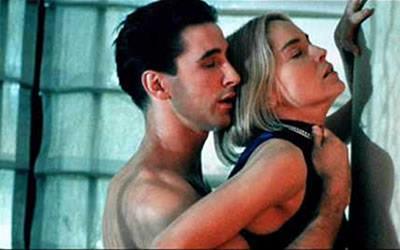
-Massive Attacks
Unfinished Sympathy and Howard Shore's electronic score
-Updating Psycho for the '90s
-Eszterhas putting a Watergate analogy in the body of a Ballardian high rise
-Turning timely fears of mass surveillance in to a dumb erotic thriller
Overall Score: 4/5
31
Do Butts Get Enough Screen Time? Ass-kin' for a friend
Towards the end of summer in 1989, when most people were flocking to the cinema to see Tim Burton's Batman, one director had other ideas about what people really wanted to see in movies. Enter porn filmmaker John Stagliano, the butt appreciators saviour and a thorn in the back side of those with a AAA (Anti Ass Agenda). His film The Adventures of Buttman is credited with kickstarting anal fetishism, which seems absurd that it took pornographers, oh, about 20 years to really acknowledge the art of the ass. Personally, I find it utterly disgusting and even offensive that fine honies were walking around in this business for years and not getting the recognition they deserve. In fact, I'm under the belief that any woman who was working in the industry between the '70s and '80s who considers themselves to have an elite posterior is more than entitled to chase down their directors and ask for some extra money. Underpaid. Undervalued. Underseen. In the words of Depeche Mode, "I Feel You".

Of course, this does not mean that Stagliano was the first to ever show a bare butt on screen. However, his attention to it and the way he did that genuinely expanded the language of pornography. This is what deems him worthy of study in Jacob Kelly's porn history class. In Buttman, he plays the central character, a freelance cameraman obsessed with, you guessed it, women's behinds. Several scenes feature him being invited to shoot people dancing at '80s parties, which reek of cocaine. Every dude is sporting a moustache and every female looks like they've just stepped off the beach. Bikinis, swim shorts, the lot. I'm sat here watching this as we head towards winter thinking, "Damn I really need to expand my summer wardrobe". Deviations in to fashion choices aside, there's some bold framing at play here. Although tasked only with shooting dancing, our pervy cameraman gets carried away and shows us why he's got a nickname like 'Buttman'.
Noticeably the angle he achieves in these shots to accentuate asses demonstrate real talent. One for the ages bringing cinephiles and ass appreciators together to celebrate a moment. Each time the women catch on to this violation, they react as you would expect and the males present at the party have to step in, taking the devious cameraman to one side and being like, "Buttman! Be cool man. We told you to film their faces". Tickled me every time because it was literally the '80s equivalent of "Buttman you're scaring the hoes!".
For those perhaps a little concerned at this point, let me be clear, these are not 'real' situations and are only made to appear that way as part of the faux documentary style. If you read last weeks issue about Jamie Gillis and you're paying attention, you may recognise this as Gonzo pornography. Pat on the back if you did. Since, this was also released in 1989 like On the Prowl, there's a strong argument to be made that John Stagliano is one of the founding fathers of the genre.
Truthfully, Stagliano might have a fair case to say he created the movement. Unfortunately, the internet is not a reliable source when it comes to the already scarce information on pornography and scholarly articles on its history are limited (most likely why I like writing about it). However, according to a few sites online, The Adventures of Buttman was released September 1st 1989 and On the Prowl December 31st 1989. In interviews, Stagliano has admitted to his title cashing in on the popularity of Batman, released June 22nd 1989, so those dates could well line up at least for his film. Also, if Gillis really did release his film on that particular date, I would like to take this moment to say, "Thank you for the birthday gift".
32
Since Gillis is actually in the opening scene of Buttman, perhaps they can both share the title of the movements originator. My guess is they were just on the same page and their output around the time is based on various discourse over the direction of pornography engaged in by the pair of them. This leads me in to that incredible and authentically arty opening of Buttman. No explanation is given as to who any of the characters are and due to the lack of exposition we're left to figure out the motives of the characters. The set-up is this, Gillis is out cruising and comes across a streetwalker. They end up moving towards a nearby alley. Out of nowhere, a beefed up angry man appears looking for confrontation with Gillis. Unexpectedly in a move that's sure to be approved of by the feminists, the prostitute is the one who knocks out angry beefed up man. Deciding not to stick around, these two left standing flee the area in search of a place to 'make it'. Much of the sex involves some rather bizarre activities, which hadn't been done before such as shoving dollar bills up the female stars buttocks. I hope everyone reading this gave Queen Liz a proper burial by inserting fivers up their sexual partners arse.
After the money shot, something even more unusual occurs. The cameraman pans over to the mirror, revealing himself in the reflection and begins talking. Despite this being a hell of a lot more common now, this would have been very revolutionary in its day. Even watching it now, I was a little caught off guard by the fourth wall break. Reminded me of Sion Sono's Antiporno in the way layers can be added or stripped away when it comes to spectatorship and different levels of reality. Without ruining it, One Cut for the Dead is another film which plays with this concept. These examples given are much more recent films and yet they still have a head ache inducing trippy effect. In a more literary sense, JG Ballard's writes something similar to the Buttman scene in Cocaine Nights
In Cocaine Nights, a rape is filmed by a character who then momentarily films themselves in the mirror afterwards, drawing the narrators attention to the fact it was filmed. Such a fact should be obvious but sometimes we forget this detail in our relationship with the camera. Unconsciously, we associate the camera with the eye and disregard the presence of a cameraman. Often, the technique is used to open movies, suddenly the footage will pause catching the viewers off guard. See for example, Michael Haneke's Cache. Occasionally, I find his work a little too self-congratulatory, seeking only to arouse the bourgeois but he is very interested in getting right in the middle of that wall between film and viewer. Funny Games is fully aware of audience responses to violence and so opts to challenge these expectations. Furthermore, Benny's Video is literally a kid filming his own violent acts with a handheld camera. Only the other day, I was hearing Mark Kermode discussing his love of David Cronenberg and how watching that man's films is like watching through a car window with that cold detached atmosphere.
Apologies, that was quite the detour, my point was that it doesn't matter how many times you see techniques involving the awareness of alternatives planes and fields of vision, it still manages to shock. Whenever a set of rules are established to have them broken before you is so unnerving and disorienting. Elicits pure anxiety as you become accustomed to unconscious processes in a Godardian manner. Stagliano made an excellent point about how first acts in movies are always wasted, highlighting the fact you can get away with more because by the second and third acts everyone knows the characters. Therefore, you should use the first act to catch your audience off guard before things settle down and the opportunity is lost. Weirdly, this is a point I've always on some level agreed with but been unable to fully understand or intellectualise. Why is it I have to come all the way out to pornography to learn such lessons?

33
In the last issue, I am aware that I may have focused too heavily on discussing the POV and the audience over the cameraman/director. When in reality, Gonzo porno by its nature should be about the latter. Yet, I do not regret my actions as that is what the effect of Gillis's set-up was. In this regard, Stagliano's film could be closer to true Gonzo filmmaking. Possibly, this stronger grasp of the concept may come from the fact he studied journalism for a while. As discussed earlier though his approach definitely puts you in to the head of the sleazy cameraman more. In Gillis's film, the camera is more of an extension of your own eye. Moreover, in On the Prowl we never saw the cameraman but here he is a proper character even if we don't always see him in the frame. Consequently, Gillis constructs a viewer's fantasy whilst Stagliano's serves a document of the cameraman's perspective. In a sense, you could call the latter auteur filmmaking in the way it presents that.
Won't even lie, I am thoroughly excited at the prospect of following more of Buttman's rogue adventures with later entries in the series. Another distinctive characteristic of Stagliano's is having Buttman present in the scene, creating essentially a 'talking camera' and allowing the other characters to speak directly in to the camera. That interaction, which was completely new, added a personal element to porn. You cannot underestimate those who go crazy for that viewer engagement being addressed directly. This whole virtual giving instructions and telling the viewer what to do is very popular today and was definitely inspired by this. Nowadays, you can literally pay for personalised videos and a porn star to even say your name in to the camera. So, impossible to deny that there's a huge crowd for that.
Cinematically, I'm more interested in how he achieves this with his camerawork and how he came to possess such knowledge. Looking at his career, you will see that he is no stranger to porn. He came of age during the sexual revolution of the 1960s. By the 1970s, he was writing erotic fiction for a small newspaper and doing some softcore modelling on the side. Wasn't long before this turned in to 8mm loops. For those unfamiliar, these were popular before feature lengths became massive. You would pay to enter a peep show, stare into the box and these 8mm reels would be playing on a loop, hence the name. Eventually, Stagliano moved away from this arena to explore his interest in dancing. Magic Mike shit you know. Since, the club he worked at already had a dancer named John, the MC took to calling him, "Evil John". Concurrently, when this was happening, he was dating a woman with a stage name of 'Angel'. Why do I mention this? Later he would combine the two for the name of his company. To this day, Evil Angel is one of the biggest companies in porn still operating.
In 1983, Stagliano moves back to pornography directing his own feature, Bouncing Buns (what else would it be called with this man) for $8,000. Clearly this man's focus has always been the arse since day one. If Russ Meyer is the most talented and qualified individual to ever shoot boobies, Stagliano could be equivalent for ass kino.
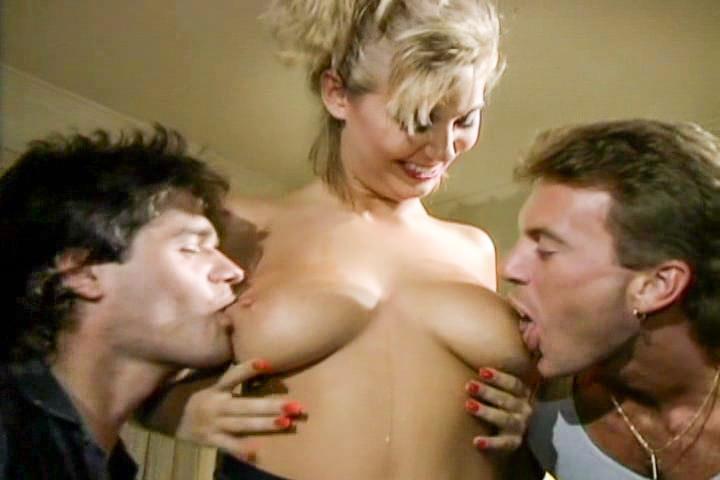
34
This comes back to my point about him being a potential auteur, his subject of choice has always been the buns. Other than this the dude loves his dancing. Apparently, he went on to explore this further in his highly acclaimed 2002 effort The Fashionistas. This 280 minute epic is meant to be his magnum opus and well respected for weaving big stars, the vital sex and even his own interests. There's a cast here that even non-porn followers will even be familiar with.
Belladona has a small role in Paul Thomas Anderson's Inherent Vice (big pornhead him you can just tell). Rocco Siffredi is a regular collaborator with New French Extremity director Catherine Breillat (Romance, Anatomy of Hell ) and finally rom-com fans may know Manuel Ferrara from Don Jon (the Joseph Gordon-Levitt movie). Bless Stagliano though he pumped $500,000 into The Fashionistas, his largest budget to date to delve into his dancing hobby. He didn't even care if it failed, the man just loved dancing. Luckily, so did the porn crowd and it was so successful it tripled its budget.
Back to the camerawork on Buttman, by 1989 he had about 6 years worth of experience under his belt and was under the impression he knew what the fuck he was doing. This would prove essential to the task he would undertake in.
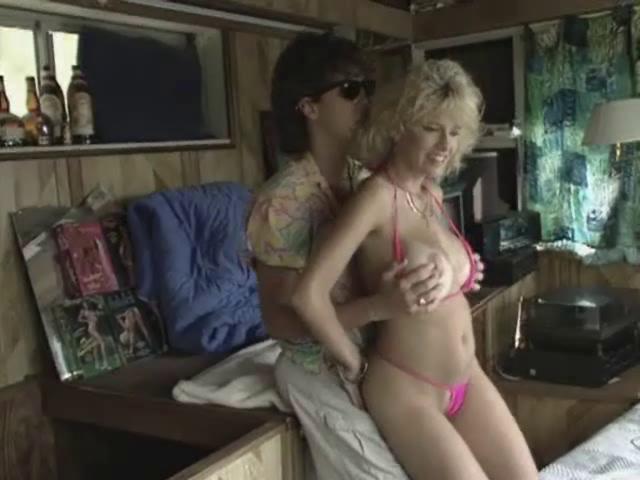
Historically, there is a lot of relevance in what he was doing too. Remember, this was the videotape era, meaning new cameras offering the opportunity for increased movement and longer shooting. The style of Gonzo allows for longer takes as well making it exactly the right time for its introduction in to filmmaking. Gonzo is heavily about the unedited experience of an event, which would have been way more difficult shooting on film.
Regardless, don't go thinking this shit was easy just cause of some improved technology. Ejaculation on demand and chemistry doesn't just go away with new cameras. May look like pleasure on screen but in reality its closer to a production line process. Therefore, merely having the literal tools to shoot Gonzo isn't everything. Thankfully, Stagliano had some real skills as a camera operator. So good in fact that he knows when to pretend he doesn't for this film as part of the faux-documentary aesthetic. Anything prior to the sex is shot deliberately amateurish but anything during delivers the goods. A true pro.
There's one moment in the film that illustrates where they were at with the film technology speaking. Stagliano hooks up the camera to a television so the participators can see them on screen instantaneously as they're fucking. You can tell this must have been pretty novel because the people involved see themselves on screen and midpenetration start screaming "No way!!!". Their infantile excitement at this now primitive technology will elicit some laughter in you as it very much did myself. These two people involved in the scene are unquestionably the funniest two porn actors I have ever seen in the history of porn. In pure postmodernist metatextual fashion, they sit back chinning beers, smoking biffs and discussing the cinematic works of Alfred Hitchcock whilst engaged in a threesome.
The Hitchcock commentary being relevant here as they debate whether the directorial cameo commonly deployed by old Alfred is similar to Stagliano's Gonzo filmmaking concept. On top of this, what's even funnier is that in the faux-documentary storyline this horny trio have kidnapped Buttman and forced him to make this sex tape for them. Every so often they'll start mocking him and shouting at the camera things like, "Oi, Hitchcock, film this!", as they prepare to engage in various sexual positions.
35
Plenty of comedy is involved in every situation because the basic set-up is designed so that Buttman is always the 'Butt of the joke'. He seeks to exploit women and always ends up on the losing side when the tables turn and becomes the humiliated victim himself. Exactly how they get away with this brand of ridiculous satire.
Prior to his victimisation by this trio, Buttman is wondering round a park at night. This hasn't been pointed out but this content is years ahead of its time. There's a popular style of filmmaking today as I'm sure you're aware with Be My Cat and the Creep series where psychopaths and serial killers meander their local towns with a camera, going about their daily activities (the more banal the better) and chatting utter shite. These tend to be the blackest of comedies, highlighting the eccentricities of the subject and their widely differing from society's views. Earliest example that comes to mind is Man Bites Dog with a killer who loathes modern architecture. The Adventures of Buttman predates this by about 3 years. Buttman's favourite topic? The moon. Watch as he rambles on incoherently about the presence of the grey orb in the sky. This is another genre in need of a name, may I suggest, 'V-log Horror'.
Moving on to a more established genre, the scene whilst not overtly belonging to found footage horror demonstrates some of that genres characteristics. "What was that?", repeats Buttman as he investigates the darkness and even blows up the footage later at home. He reexamines it, zooming on places to observe closer. We've all seen that scene before. Cannibal Holocaust is usually accepted as the first found footage film back in 1980. Having said this, it does not follow the more traditional format of the genre. Therefore, The McPherson Tape is regarded as not popularising the genre but being one of the first to embody a lot of the common features seen today. This was also released in 1989 on January 1st. Is it possible Stagliano was influenced by this? More likely he saw the technique used in Blade Runner but let's give him some credit, this stuff wasn't so regularly adopted until the late '90s and early 2000s.
It may be apparent that I haven't yet acknowledged many criticisms of Gonzo pornography. Last issue, I touched on blocking but another is plot. Gonzo porno detractors will place emphasis on how it leaves no room for substance due to the fact it's all sex scenes. Undeniably, there is more sex and less traditional storytelling. However, I would like to think in these last two pieces of writings, I have proved that it is doing something and evidently advancing the vocabulary of erotica in film, all while having more sex scenes in there. That's something to praise right?
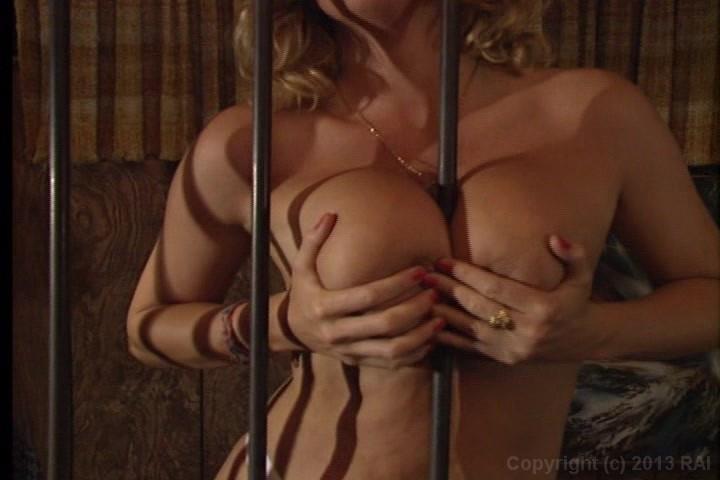
In terms of economy, Gonzo is a tool which removes slack and promotes greater efficiency. Buttman's style brings the cameraman's intentions to the forefront and expresses the thoughts of the actors through the fourth wall breaking interactions. Fair enough if you want to say that will only lead to cheap and lazy filmmaking because of the lack of subtlety and visual storytelling being taken away. I don't necessarily disagree with you, a lot of this needs to take place in the mind and not be verbalised. Understand though that it is a tool (that can be well used) and most importantly, in 1989 it was new. Finding a way to offer the viewer new experiences, whilst not only maintaining a good ratio but increasing the sex is beyond impressive. As a result, Gonzo filmmaking becomes both artistically and commercially the way to go for porn in 1989.
How I've ignored the commercial aspects thus far, I am unsure. One of my greatest weaknesses in life is my inability to see financial opportunities in particular situations, even in porn to some extent. Generally, the thought just doesn't occur to me and hinders all my endeavours because the simple fact is you need money to sustain passion projects. However even a fool like me can see the money benefits in this style of filmmaking.
Finding 36
Production costs come right down in this arena. Due to the desire to be raw and realistic, you can cut out many typical roles. Starting with the lighting guys. Who needs them when natural lighting is preferred here. Stars? Not really necessary as part of the storylines incorporate the notion of finding unknowns of the street. Editors? These guys can take a walk too because most of its filmed long takes anyway. Don't have to be an editing wiz to put just a couple of clips together. Forking out for sets is unnecessary too because that would only destroy the authentic look. Equipment wise? No need for tracks just a good pair of hands to hold the camera and move around cleanly. Think Sorkin except this time it's 'fucking and talking'.
Doesn't take a genius to work out why Gonzo became THE genre of the '90s porn scene. It is not often producers can save money and meet audience demand. You can literally see the money bags lighting up in these guys eyes like James Woods when he first discovers Videodrome "Brilliant, absolutely brilliant! And almost no production costs...I think it's what's next!", he blurts out at his colleagues.
Everything I have read about Gonzo porno indicates that at some point in the '90s this genre becomes increasingly disturbing and focuses on the POV. People like Max Hardcore arrive with Bizarro Sleaze directors Gregory Dark and Rob Black to really challenge the boundaries of extremity. Taking porn away from its more wholesome and innocent origins (if it could ever be deemed to have had such). Is this a natural part of evolution with audiences demanding greater violence and shock or does this belong to deeper Y2K fears in society? A reaction to the potential apocalypse and an anything goes attitude. Can these films still be considered productive fantasies? Is there a place for morality in fantasy? Or do some of these films go too far and stray dangerously close to snuff? I intend to ride out this train of madness and find some answers.
Bonus Points:
-Ass appreciation

-The 'Talking Camera'
-Buttman scaring the hoes
-Cool lack of exposition in the opening scene and a clever reveal
-Use of available technology
-The two dudes in the threesome just casually discussing Alfred Hitchcock midpenetration
-V-log horror and found footage elements
Overall Score: 4/5
37










































